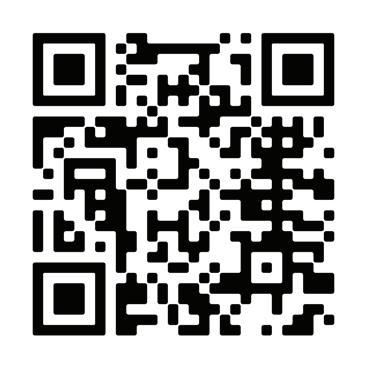COE
BUTLER UNIVERSITY COLLEGE of EDUCATION


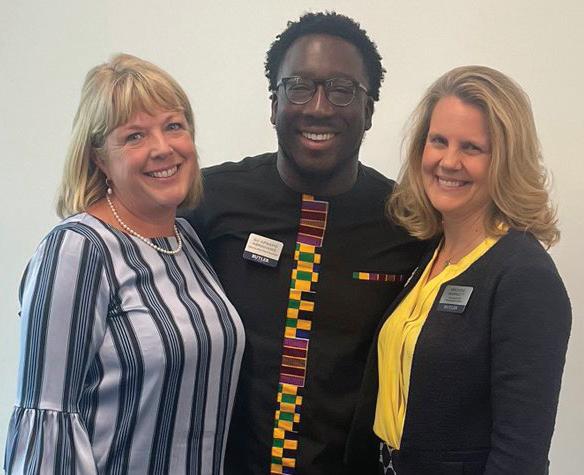

Dr.

Prof.
Dr. Brooke Kandel, Dean



Matt
Dr. Danielle Madrazo

Hailey Radakovitz ’21
Prof. Felicia Williams
Katrina





Dr.

Prof.
Dr. Brooke Kandel, Dean



Matt
Dr. Danielle Madrazo

Hailey Radakovitz ’21
Prof. Felicia Williams
Katrina
The College of Education’s vision is to “serve as inclusive collaborators and agents of change toward a just society.” In the 2022 Year in Review, I wrote about the hopes we have for our profession, for educators, and for the students we serve. The past year has been one of transformation and growth for our College as we have manifested our hopes into strengthening relationships with colleagues, students, and community members; building and sustaining partnerships; and enhancing and expanding the programs we offer. At the same time, we have acknowledged the challenges–educator shortages, socio-political pressures, and mental health to name a few–currently facing K-12 and higher education. We take seriously the ethical and moral obligation and responsibility to serve as a resource and support for educators; to learn, advocate, and lead as educator-scholars; and to innovate our curriculum and our instruction for the benefit of learners.
Our approach to both our growth and the challenges we face is to persist with a spirit of collaboration, an orientation toward action, awareness of our own areas of weakness, and a commitment toward a just society. As you read the 2023 Year in Review, I invite you to look for stories that share the COE’s growth and transformation and, most importantly, highlight the people who make that growth possible. You will also see evidence of how the COE is responding to the challenges facing education. One example is the initiative of Dr. Danielle Madrazo’s ED 299 class, along with four COE student leaders, who worked with James Whitcomb Riley IPS #43 and the Butler-Tarkington community to reopen the school’s library that had long sat dormant (pp. 8-9). The relationships built and lessons learned through the collaborative library reopening provided an opportunity for the COE to consider curricular and instructional innovations in our educator preparation program.
Another example of growth in our programming that attends to the challenges educators face is the re-envisioning of our Sports Coaching minor, a concentration option in our Youth and Community Development (YCD) major that has curricula focused on creating well-informed and forward-thinking educators. The Sport Coaching minor approaches coaching and sport from a decidedly human-centered perspective and prepares Butler students from all majors to leverage sport as an avenue to engage youth and support their well-being (p. 11). Similarly, our new online Master’s in School Counseling and Master’s in Mental Health Counseling are human-centered programs designed to provide accessible and flexible education for individuals who wish to pursue a career in counseling and respond to the mental health and well being needs of of children, youth, and adults in our communities (p. 6).
In this issue, we also celebrate the impact of our alumni and their skill and commitment in building relationships, creating community, and persistently working toward a just society. Ben Young ’14, an Alaskan native, has used his teaching training to preserve his indigenous language Haida through his involvement in the Haida language film “Edge of the Knife (S’Gaawaay K’uuna)” and the creation of the Xántsii Náay Haida Immersion Preschool, in his hometown of Hydaburg, Alaska (p. 15). He traveled to Indiana this spring to screen the film for the Butler community and was a guest speaker in our classes. Similarly, we applaud Franklyn Bush (MS ’10) and Victor Bush (MS ’07) who serve as inspirational leaders in a local school district where they are focused on offering students excellent academic opportunities while providing support, care, and resources for their community (pp. 16-17).
On behalf of COE colleagues, I share deep gratitude and respect for the educators and leaders who, like Ben, Franklyn, and Victor, spend their days (and often nights) teaching, encouraging, coaching, mentoring, and challenging so that others can grow and thrive. Thank you, educators, for your commitment, your efforts, and your persistence both in the face of challenges and in the presence of joy. I hope you—our valued supporters, friends, and alumni—will stay connected with the COE through our social media, COE events, and visits to our home on Butler’s South Campus. I look forward to our continued collaboration. Please share your thoughts, questions, and ideas with me at bkandel@butler.edu
With gratitude,
 Dr. Brooke Kandel, Dean Butler University, College of Education
Dr. Brooke Kandel, Dean Butler University, College of Education
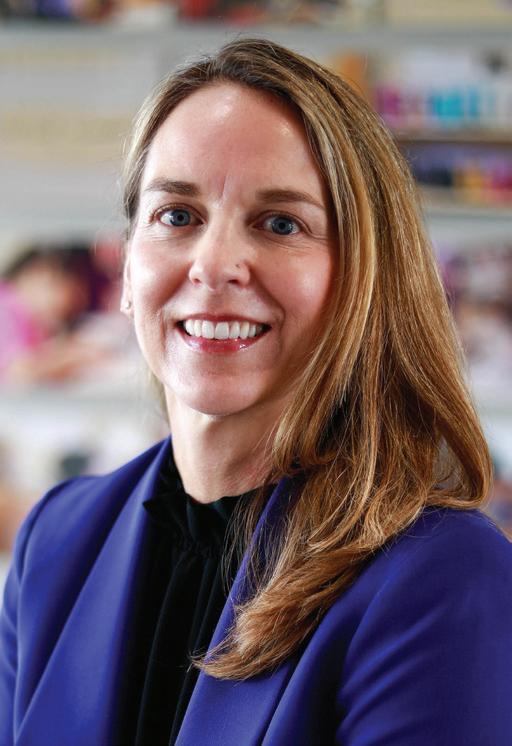
As faculty and staff members in the College of Education, these Shared Commitments represent our histories as well as our opportunities to learn and grow in our beliefs and practices. We understand we make mistakes and engage imperfectly in this work. By learning from and with one another and with diverse communities, we use our strengths alongside these mistakes and imperfections to stoke our professional curiosities, provide provocations for improvement, and ensure that we avoid complacency in our work and in our world.
Pursue a Just and Equitable Society.
We aspire to embody and enact anti-racist and identity affirming teaching, scholarship, and professional practices. This means providing maximum access and opportunities to notice, name, and interrogate our own practices and those of others. We commit to dismantling systems and policies which have historically been used to marginalize and which persist in denying full educational access to all learners. Simultaneously, we uphold, strengthen, and create systems and policies that promote just and inclusive practices.
We work to integrate theory and research to inform, interrogate, and renew our professional practices. We are intentional and transparent in engaging with research to assess what is working within our practices while also challenging who we are and changing our practices to interrupt inequitable systems for all learners. Using the research we create and seek, we confront what is difficult in our individual and collective work to transform ourselves and impact communities.
Embody Inclusive and Responsive Teaching, Learning, and Mentoring.
We demonstrate transparency in the ongoing and intentional development of our professional identities through self-examination and self-transformation. We are engaged and active contributors to our professional practice through collaboration and solutionfocused advocacy. We commit to keeping our teaching practices relevant and engaging for all students across all identities. Our teaching and mentoring must reflect what we hope to see revealed in our students’ professional practices.
*Affirmed by Omni May 7, 2021
Dr. Erica Buchanan-Rivera ’07, MS ’10 EPPSP | Educational Consultant, Author of Identity Affirming Classrooms (2022)
Dr. Jamyce Curtis Banks MS ’98 EPPSP | Founder & CEO, Whatever It Takes Consulting, Inc. | President, National Association of Women Business Owners (NAWBO), Indianapolis Chapter | Secretary, Delta Kappa Gamma Society, Omega Chapter, Indianapolis | Board of Directors, Dress for Success Indianapolis
Jeff Kucer | SVP and COO, Regional President Organization, The PNC Financial Services Group, Inc.
Sara Marshall ’06 MS ’15 METL | Executive Director, Teach Indy | Edge Mentoring, Board of Directors | Aspire Higher Foundation, Board Member | Indiana Latino Institute Leadership Circle, ’20
John McShane, Jr. MS ’18 METL | Training Lead, Siemens Healthineers
Arisa Moreland ’19 | English as a New Language Teacher
Colleen O’Brien | Education Policy Consultant
Randall Ojeda MS ’18 School Counseling | Director, Efroymson Diversity Center, Butler University
Marsha Reynolds ’78 | Educational Consultant
Cathy Springer-Brown ’76 | Educational Consultant, Community Volunteer
Brittany Turner Purvis, MSW, LCSW | Bloomingkids Counseling, LLC
Alexis Methner
My first year in the COE has been a breath of fresh air. I feel supported and seen by all of my colleagues who always strive to make me feel at home.
Felicia Williams
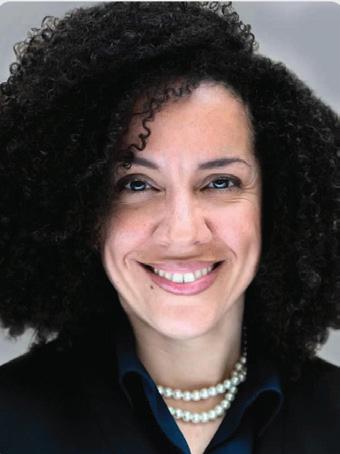
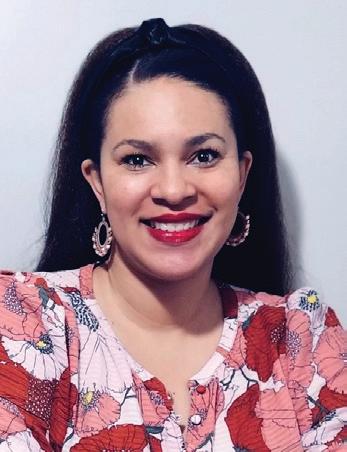
In the beginning everything was up, down, all around. I was nervous, scattered, panicked, and second-guessing myself. Now, thanks to several colleagues, I feel grounded and focused. I’ve grown as a person, educator, and I hope as a coworker. All in all, I am grateful for the good, the bad, and the ugly and am looking forward to next year.
Brooke Harris Garad
I have enjoyed my first year in the COE. I had the special privilege of working with Butler students in my own daughter’s third grade classroom. I’m grateful to my students and colleagues for making it a meaningful first year.
Karen
Chloe Moushey
Ms. Chloe Moushey joined our faculty on June 1, 2023 as Lecturer and Program Manager for the online M.S. in School Counseling and M.S. in Mental Health Counseling. Ms. Moushey began her career as a licensed therapist at a mental health center in Kansas and has since served as an Adult Outpatient Therapist, Crisis Therapist, Clinical Preceptor, and is now the Program Manager of Crisis & Psychiatric Consult for Community Health Network in Indianapolis. She served as an adjunct professor for Butler’s LMHC Master’s Program teaching two courses, ED 678: Diagnosis and Treatment Planning and ED 680: Topics & Experiences in Mental Health Counseling.
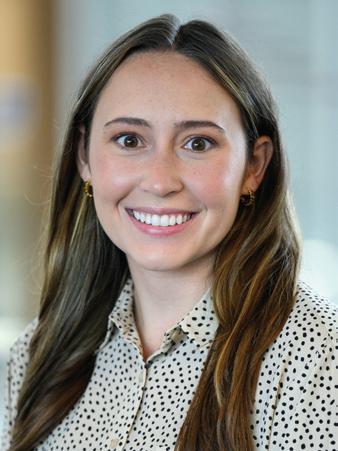
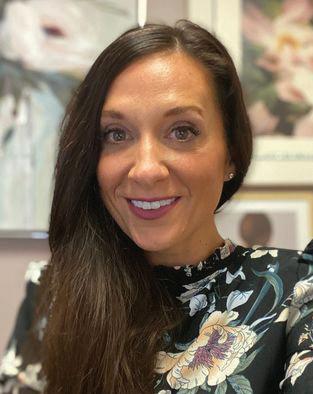
Long-time Butler University staff member, Mrs. Karen Farrell ’91 passed away on August 17, 2023. She served in various roles in the College of Education in her time at Butler. Most recently, Karen was the COE Data Management and Accreditation Administrator. For 40 years, Karen was a dedicated and steadfast member of the Butler community. Her attention to detail and vast institutional knowledge was unparalleled. It is estimated that she saw the COE through 5 accreditation cycles, which is a massive undertaking. She had a vibrant personality and a fantastic sense of humor. She was well-loved and respected in the COE and beyond.
In addition to her official roles with the University, she was a dictionary aficionado and professional editor, for many years co-editing Word Ways: The Journal of Recreational Linguistics with her husband, long-time College of Liberal Arts and Sciences Mathematics faculty, Dr. Jeremiah (Jerry) Farrell.
She was preceded in death by her husband, Dr. Jeremiah Farrell. She is survived by her daughter, stepson, sister, and their families.
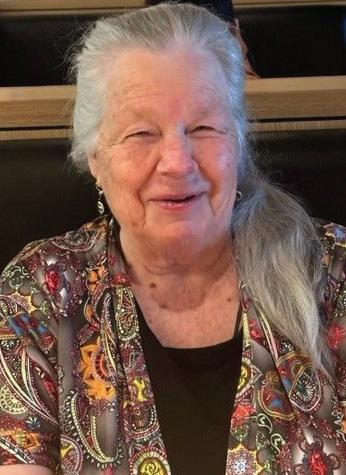
Butler University is launching two new online master’s degrees through its College of Education: a M.S. in Mental Health Counseling and a M.S. in School Counseling. Both programs prepare graduates for licensure in their respective fields.
Butler’s Master of Science in Mental Health Counseling program offers hands-on training and a pathway to dual licensure in mental health counseling and clinical addictions counseling. Graduates can pursue careers in a variety of settings, including private practice, clinics, schools, addiction and recovery organizations, and inpatient and outpatient hospitals. Employment of substance abuse, behavioral disorder, and mental health counselors is projected to grow 22 percent from 2021 to 2031, much faster than the average for all occupations. About 43,600 openings for substance abuse, behavioral disorder, and mental health counselors are projected each year, on average, over the decade. The program comprises 20 online courses and typically takes 2-3 years to complete.
The Master of Science in School Counseling program prepares students for licensure as professional school counselors through online classes and hands-on experience. Graduates typically pursue careers in K-12 schools as counselors, career advisors, and more.
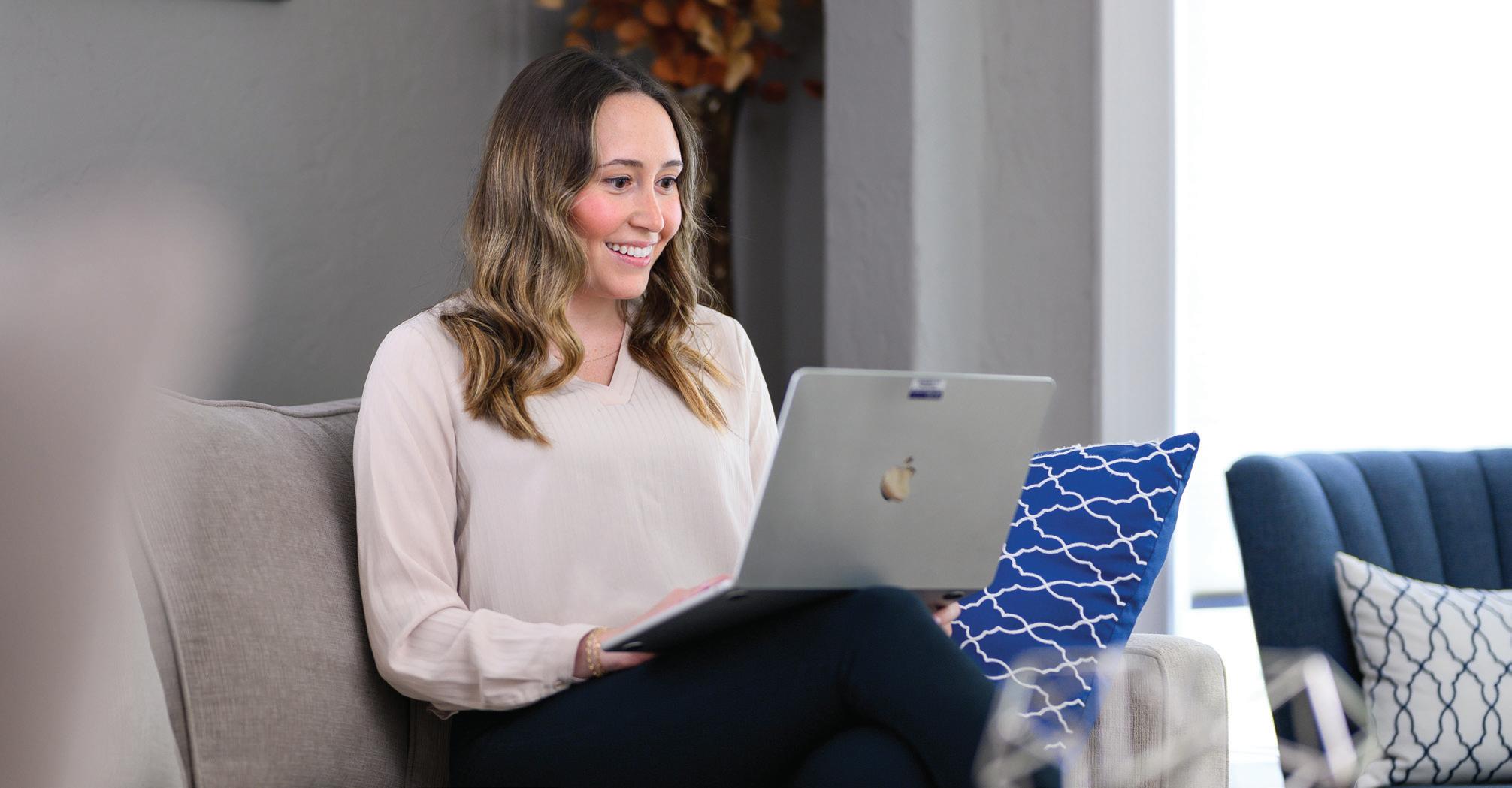
The need for school counselors is expected to grow 11 percent between 2020- 2030, resulting in 37,000 new positions. Coursework for this online program mirrors Butler’s successful on-campus program, which has boasted a nearly 100 percent job placement rate for the past decade. Most students will complete the program in three years, though it may be possible to accelerate the program.
“Butler University has a national reputation for indepth instruction that prepares students for careers that positively impact individuals and communities,” Dr. Brooke Kandel, Dean of Butler’s College of Education, said. “Through these new master’s degree programs, we are making that same high-quality level of instruction available online, giving students the flexibility they need to complete their degrees at their own pace. Both programs are taught by expertlevel faculty with years of professional experience in their respective fields. They have a real-world understanding of what it takes to succeed and bring that knowledge to the virtual classroom.”
For more information on these programs, please visit: https://www.butler.edu/education/ graduate-programs/
› The Jeremiah P. Farrell Award for Excellence in Mathematics Education for 2022-23 | Katherine Olsen ’23
› 2022-23 Future Educator Award, Indiana Foreign Language Teachers Association (IFLTA), the Indiana affiliate of ACTFL | Jacqueline Bickhaus ’23, Secondary Spanish
› The Dr. Michael Peter Livovich Servant Leadership Award 2023 | Peyton Abdel-Razik ’25
› IACTE Outstanding Future Educators | Madison Pines ’23 (Elementary) and Lily Haag ’23 (Middle Secondary)
› Outstanding Elementary Student Teacher | Melissa Ryan ’23
› Outstanding Middle Secondary Student Teachers | Jenna Nelsen ’23 and Maddie Jacobson ’23
› Outstanding Human Movement and Health Science Student | Wes Matatall ’23
ALUMNI
› 2022 Hilton Ultimus Brown Alumni Achievement Award | Dr. Dana Altemeyer ’04, MS ’07
› 2023 Black Excellence in Education Arnold Mickens Leadership Award | Dr. Erica Buchanan-Rivera ’07 MS ’10
› WISH-TV Golden Apple Award | Isaac Adams ’13
FACULTY
› Texas A&M Outstanding Alumni Award 2022 | Dr. Brooke Kandel, Dean
› Butler University Inaugural 2023 DEI Champion Award - Program | Dr. Susan Adams and the COE Faculty Fellows Program
› 2023 Thomas C. Hasbrook Award from WFYI | Dr. Debbie Corpus ’74 BY
2023 COE
$33,285
Total dollars raised to allocations supporting COE
COE Annual Scholarship Fund
COE Dean’s Opportunity Fund
$5,740 $1,235
COE Diversity, Equity, and Inclusion Fund
Ena Shelley Fund for Teaching & Learning
$2,300 $1,560 $22,450 7
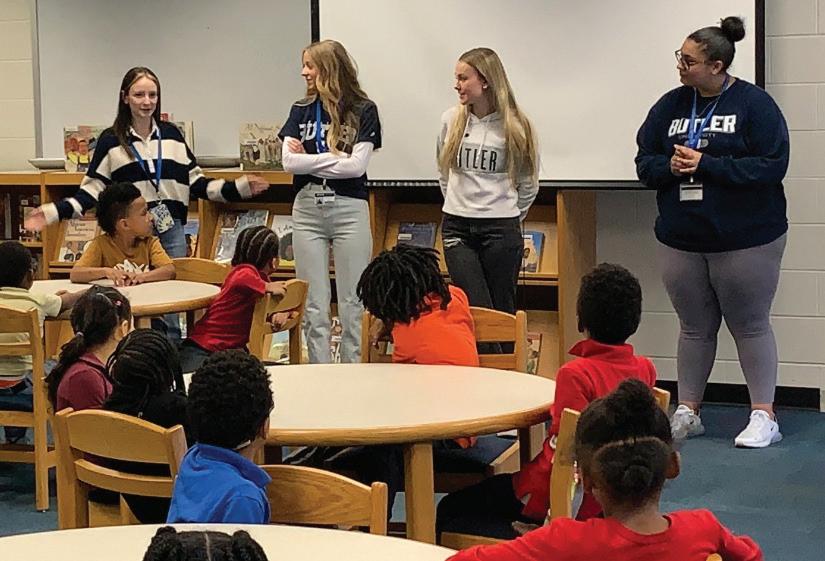
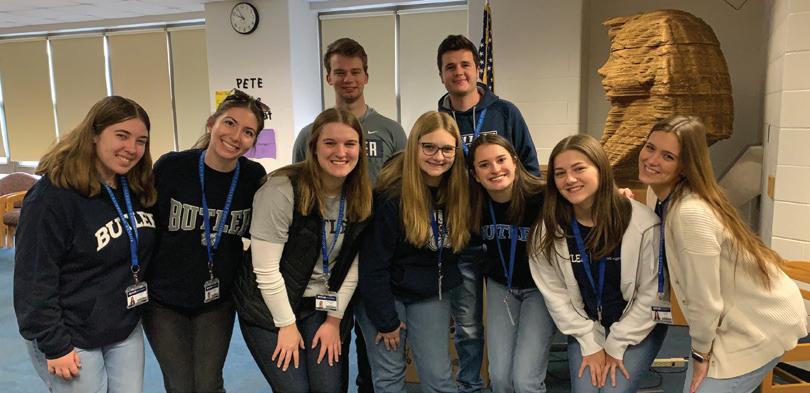
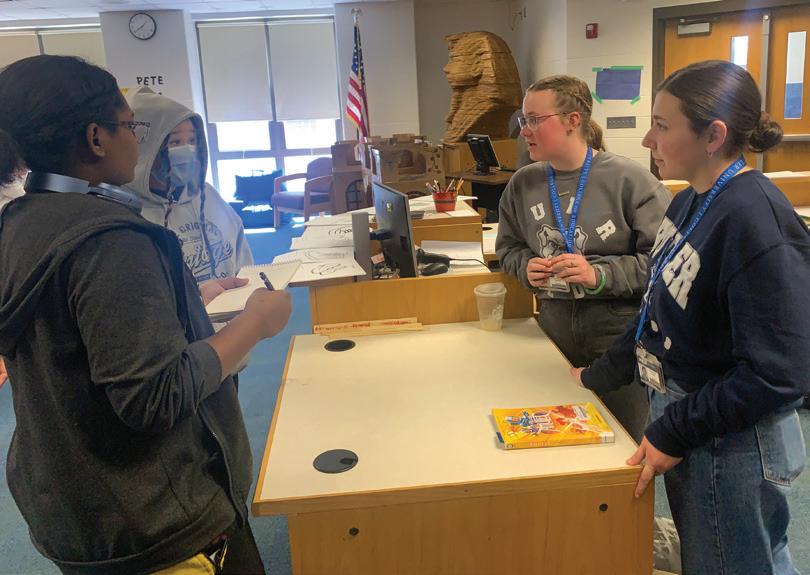
 By: Dr. Danielle Madrazo
By: Dr. Danielle Madrazo
James
Whitcomb Riley IPS #43 (JWR)is a PK-8 school with a long history of Butler-Tarkington community support. During the 2023 spring semester, Butler COE students had the opportunity to see the strengths of these community partnerships in action. The COE teamed up with a faithful group of volunteers led by Brenda Vance, Butler-Tarkington Neighborhood Association Board Member and JWR alumni, to reopen the school’s library which had been closed since COVID. In total, 45 COE students learned alongside the JWR alumni, volunteers, students, and staff. Community volunteers included members of Butler-Tarkington churches, National Council of Negro Women, JWR alumni, and retired educators and librarians.
Brenda Vance kicked off our partnership in early January 2023 by providing an overview of the rich history of JWR and highlights of its many successful alumni to Dr. Danielle Madrazo’s ED 299 students and the four COE student library leaders, Jayla Cromwell, Megan Croner, Keira McBride, and Addy Henson. The school’s principal, Lauren Johnson, also led conversations with COE students around the challenges and opportunities that educators face in teaching and leading in urban schools. In ED 299, COE students examined 1930’s redlining maps of Indianapolis and began discussing the systems and policies that have led to current disproportionality in funding and academic outcomes for students of color in our city. These early experiences provided a foundation for the partnership to flourish.
The JWR library was officially opened on February 6th, 2023 with COE students or community volunteers present four days a week. In a recent article published in the Butler-Tarkington News, Brenda Vance said it best, “Butler University students are learning things they could never learn in a classroom. Working alongside experienced professionals and interacting with School #43 students provides valuable hands-on experience and real-world learning opportunities.
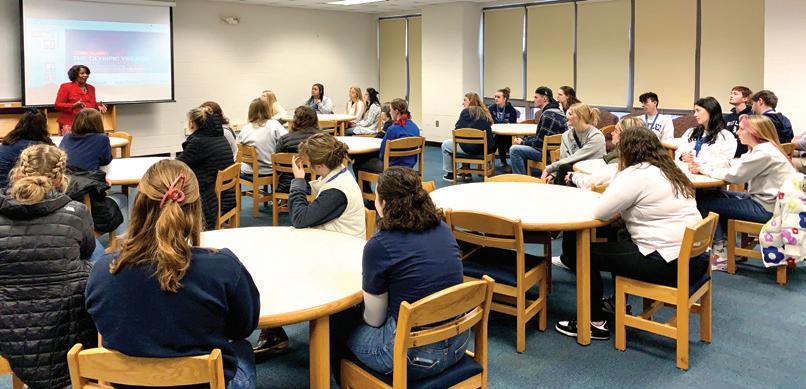
This kind of experiential learning can help both the Butler and School #43 students develop practical skills, build confidence, and deepen their understanding of the world around them.”
During our time at JWR, COE students and community volunteers facilitated literacy rich activities and cultivated meaningful relationships. COE students shared these insights about their time at JWR:
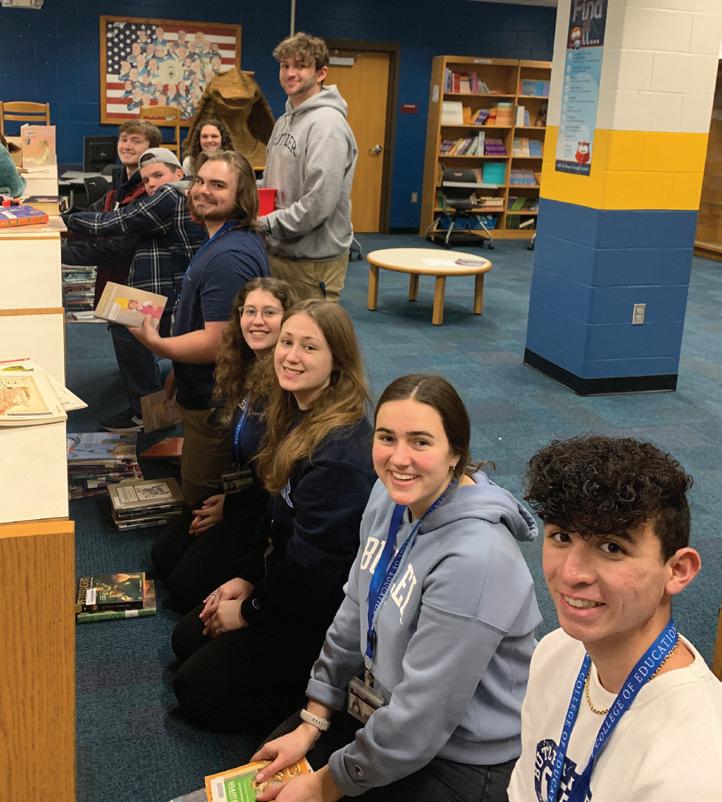
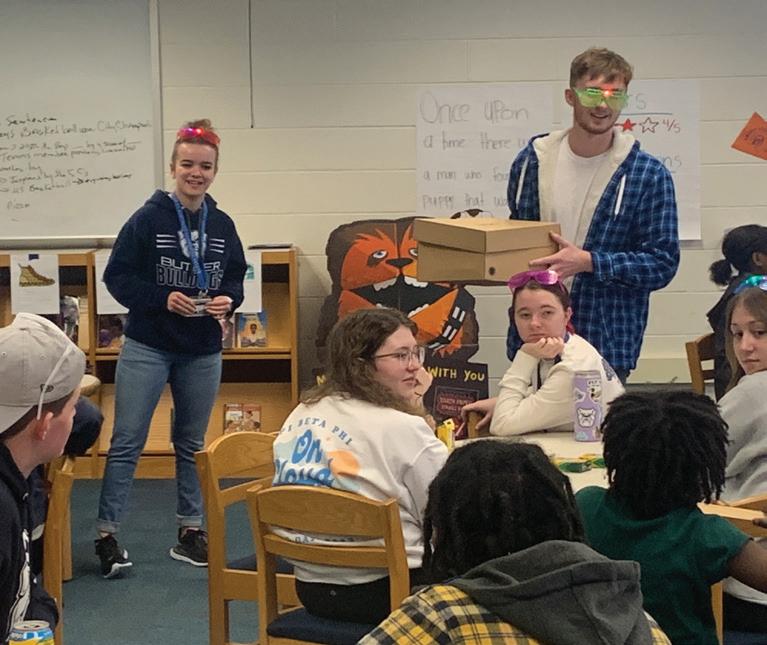
I never thought I’d get the experience to be making relationships like this with kids this early in my education career. This experience has really set everything in stone. I know this is one of the many things I want to do with my life, and JWR has helped me figure that out. -
Kat FreemanI have grown up and gone to schools in urban areas as a kid, but it was a different experience to be in one as a future educator. I have always known that I wanted to teach in schools like the ones I grew up in, and being in JWR has only reinforced that feeling.- Maddie
WoodThis was one of the coolest academic experiences of my life. Not only that, but to have it as a first year college student is invaluable. - Mikey
PepkeStudents at JWR are benefitting from more individualized attention and support. In the same way, my class has a front row seat in understanding the education system and the daily ins and outs of schools. There is no room to glamorize the field with pretty bulletin boards or cheesy quotes, classrooms are full of students with great need and we get to see what the school is doing well and where we might do it differently in our own classrooms. I think the experience is great because it is realistic and insightful. - Anna
KrupkaJWR has changed my view on urban schools tremendously. Sometimes thinking about teaching in an urban school can be intimidating. I grew up in Indianapolis and had never heard of JWR until ED 299, and I am so glad that I did. I was nervous prior to attending JWR when we were talking about it in class, and now I have so much more respect for IPS schools. I have been so moved by my experience in JWR. I think I might want to spend some time working in IPS.-
Makensy HartThe experience I have gained at JWR is invaluable, and I love the opportunities that it has given me. I now see urban schools in a different light. I also think it is so amazing how many great people have come out of JWR and all that they have done for the school later in life. The community around JWR is so strong and supports their school in amazing ways. -
Ellei ColemanBeing able to see classrooms full of bright students, but also acknowledge some room for improvement and understanding is powerful. I think too many times future educators don’t get to see classrooms like JWR and understand that not everyday is perfect, so definitely being able to see it, understand it, and make meaningful connections with the classroom was so important for me.
- Madison MarchandWe are learning so much as educators at JWR that we can’t learn in a classroom and that has made a huge impact on my growth as an educator.
- Brayden MartinThe scholarships that I have been awarded not only from the College of Education but from the University have impacted my life in a manner for which I will forever be thankful. Through the financial support I have been awarded, it has allowed me to be a full-time student and they have taken care of the costs of my books, but the biggest impact of all is the community that has embraced me and supported me throughout the last two years. In the past two years, I have been able to take part in a lot of memorable experiences at Butler that I’d like to share. My first semester at Butler I had class with Dr. Madrazo as a class we were able to participate in teaching Citizenship classes to adults in a partnership we have with the Immigrant Welcome Center. I was invited by Dean Kandel to be part of a recognition celebration of alumna, Dr. Erica Buchanana-Rivera by participating in a reading from her newly published book. The College of Education organized a trip to the Legacy Museum in Montgomery, Alabama, that allowed us to learn so much about the Civil Rights movement and empower and educate us further about the ways we can affect change. There are many more wonderful things I was fortunate enough to experience because of being awarded these scholarships.
My name is Kenya Bustos Diaz and I am a first-generation immigrant college student at Butler University. I am beyond grateful to have been awarded not only the Marcia A. Ritcher Scholarship in Education but also many other scholarship opportunities granted by Butler University. To understand the impact these scholarships have had on my Butler experience, and in my life, I’d like to share with you that I have been working to earn a Bachelors in Education for 11 years. Due to my status in the U.S., it has been difficult to pay for school because of two major obstacles: being ineligible for in-state tuition and ineligible for Federal or State financial aid. Although those have been major obstacles to overcome, in 2013 I became a recipient of the Deferred Action for Childhood Arrivals (DACA). This has opened doors for me to work and pay for school. I completed my prerequisites at Ivy Tech Community College and transferred to Butler University in the Fall semester of 2020. I was very nervous about how I was going to afford the rest of my tuition, but I took a leap of faith and followed my heart and enrolled at Butler, and it has been so rewarding to call myself a Butler Bulldog.
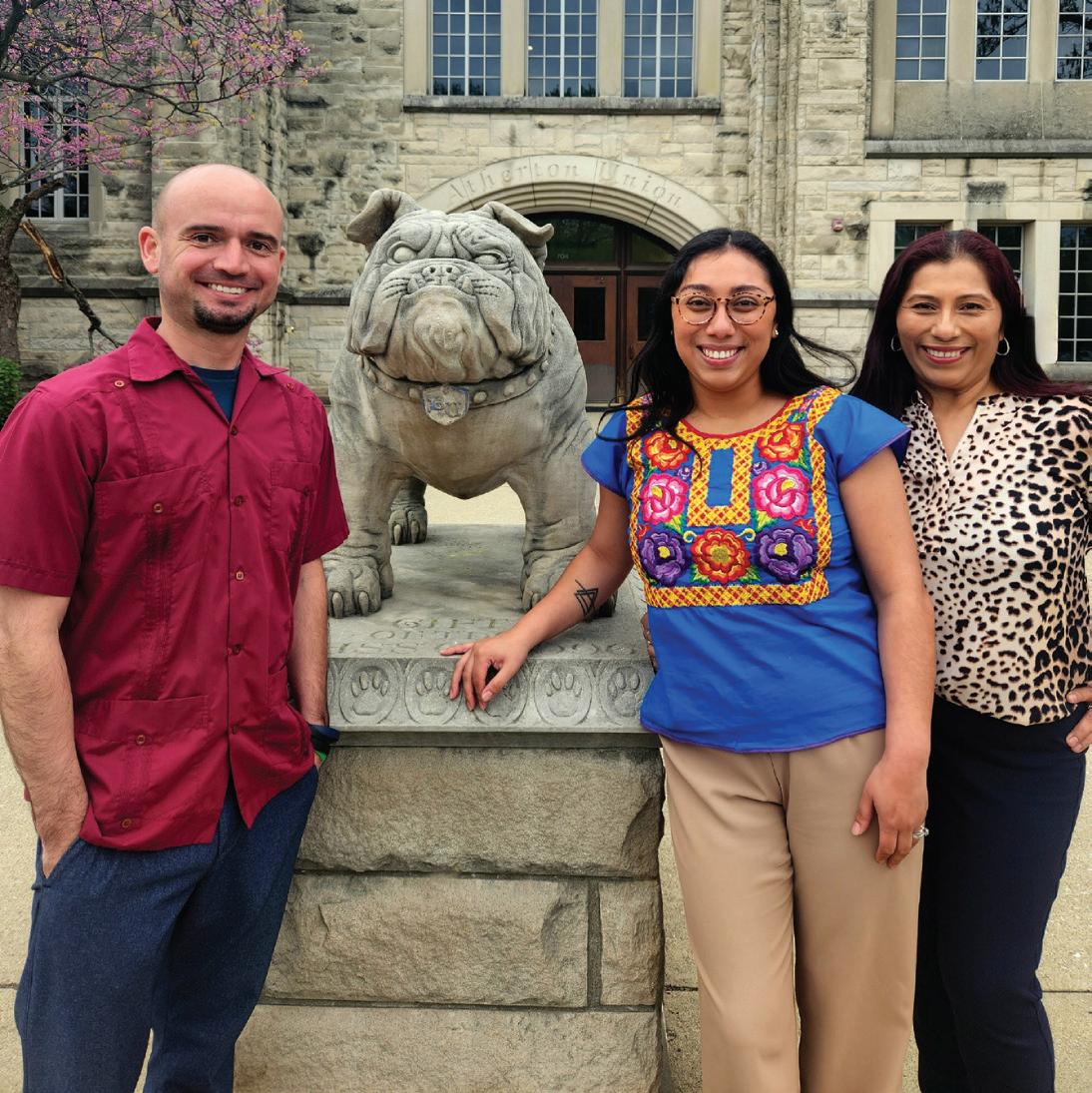
The memories I’ve created and the experiences I have lived while being a Butler student would not have been possible without the scholarship awards I was given. These scholarships have allowed me to grow as a person and as a future teacher, and without the support of these scholarships I probably wouldn’t have been able to experience and enjoy what it means to be a Bulldog. The lasting impact of all these experiences and opportunities will forever be a part of me as a person and I hope to be able to give back to my school in the future to support other students who also have the dream of being first generation college graduates.
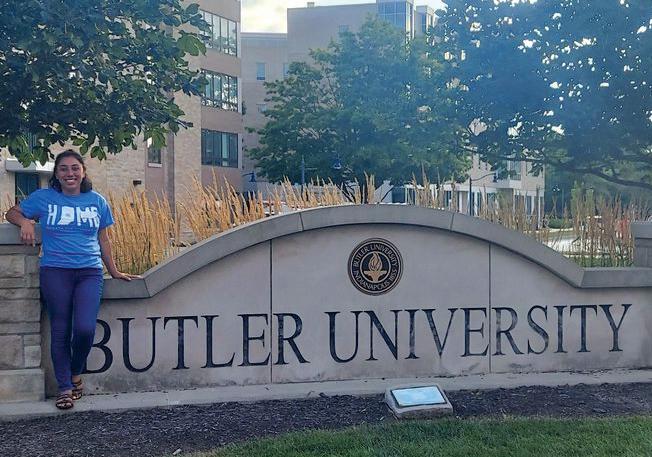
Involving students in athletic programs has never been more important. Not only do sports bring a sense of teamwork and strengthen work ethic in participants, but these activities also lead to improvements in physical, mental, and emotional health.
Despite these clear benefits, school athletic programs have seen decreased participation and interest in recent years. According to a survey by the Aspen Institute and Utah State University, nearly 3 in 10 students who were athletes pre-pandemic are no longer interested in playing organized sports.
There is plenty of speculation around what caused this shift. Hyper-competitive youth leagues, digital distractions, and skyrocketing costs to participate are named as key contributors to this issue.
So what will it take to reinvigorate these programs for young athletes? For those within Butler’s College of Education, the answer is clear—to have strong and successful sport programs, there must be a knowledgeable and dedicated coach leading the way.
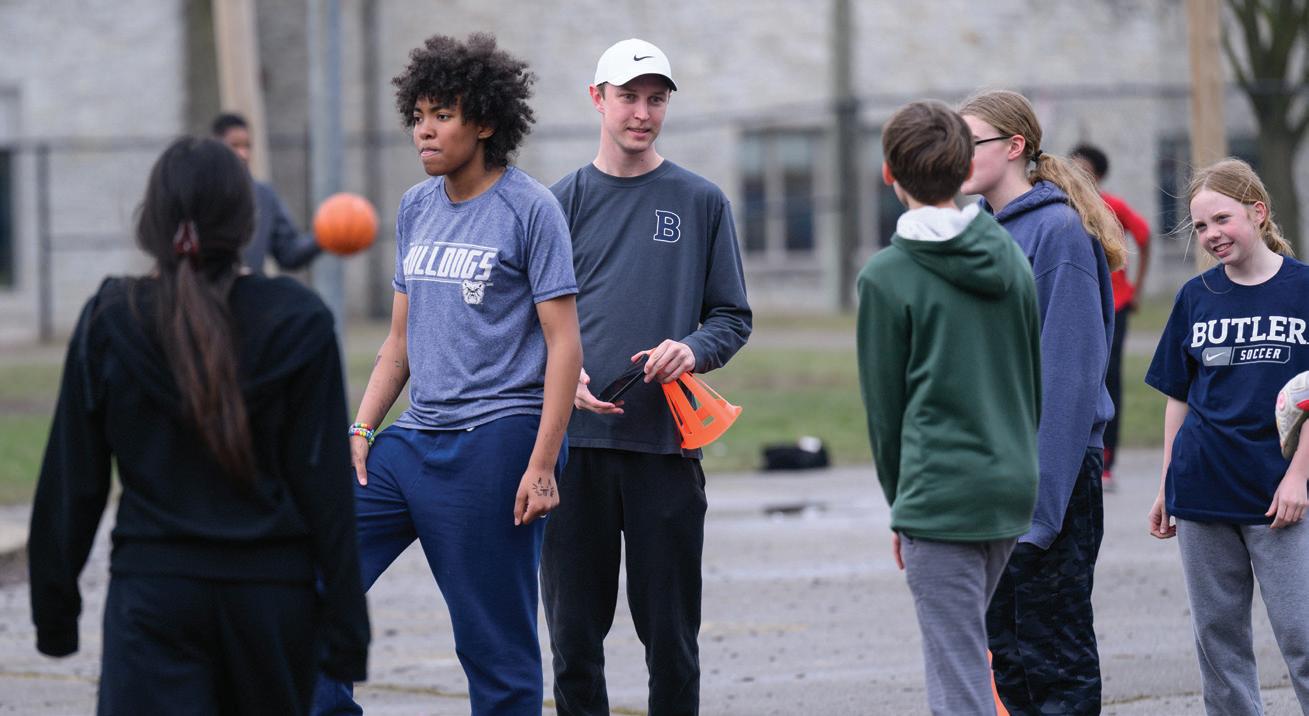
The College of Education is addressing this head on, and its recently-revamped Sport Coaching minor is a significant part of this. Available to all Butler students, this program focuses on providing future educators with the knowledge they need to properly lead athletic programs.
“Anybody can be a coach, but not everyone can be a good coach,” Associate Professor Lisa Farley notes. “We’re trying to help our students develop strong coaching skills so that they can impact people for a lifetime.”
This minor, created six years ago by Dr. Mindy Welch ‘79, Dr. Lisa Farley, and faculty members Art Furman and Amy (Vonderheide) Bultinck ’99, MS ’17, was completely revised two years ago with input from Assistant Professor Fritz Ettl. The 21 credit-hour Sport Coaching minor now focuses on helping students develop crucial coaching and teaching skills and values, and it also has a significant emphasis on hands-on learning.
“Students need to have really meaningful experiences, so we wanted them to go through this minor being athlete- and youth-facing,” Ettl says. “They need to have real opportunities to coach, so the experiential part was extremely important to incorporate.”
Students who pursue this minor also have the opportunity to go global and put their skills to use around the world. The recentlyadded Global Sport Coaching course provides students with several opportunities to broaden their knowledge of coaching in different environments, such as attending the Special Olympics World Games in Berlin this summer. With plans to expand and offer new experiences abroad in the future, students in this minor will have several ways to apply their coursework in a realworld context.
No matter where in the world students end up, one thing is always certain. “The best coaches are the ones that create the best overall experiences for athletes,” Ettl says. Rather than focusing solely on performance and winning, the minor emphasizes the importance of life lessons and skills that coaches can bring to young athletes.
The Sport Coaching minor is a concentration within the College of Education’s Youth and Community Development major. With a curriculum that is focused on creating well-informed and forward-thinking educators, this major prepares students for any setting they may find themselves in, whether that be on a sports field, inside a classroom, or in a non-traditional learning environment.
“Students have said that they love the educational model that we have [in this major],” Farley says. “In their future career, they won’t always need a teaching license. Several of the students in this program have gone on to do exactly what they wanted to do after graduating, whether that’s attending graduate school, coaching, or getting a job in a non-traditional setting.”
There are endless possibilities for students who graduate from this program, and there are several unique career paths to explore. “The Youth and Community Development major gives them the option to do so,” Farley says. “The sky is the limit.”
’21
Butler’s College of Education provides students with tools to promote collaboration on the athletic field, in the classroom, and everywhere in between.
Imagine for a moment that you could create your own personal college. It would be focused on your particular needs. It would have professors who knew you and shared your passions. Classes would be closer to interesting conversations with a small group of friends than long lectures with dozens of strangers. And help would always be right next door. That’s a close description of Butler University. Learn more about how we take your education personally.
Dr. Brooke Harris Garad Lecturer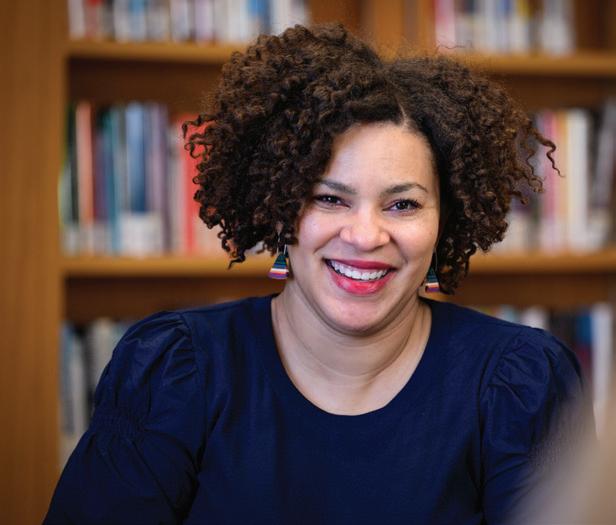
How have your students encouraged, inspired, or influenced you?
It’s rewarding to know that I have played a role in helping more elementary school students have access to high-quality teaching and instruction. The students we work with in the College of Education could end up becoming yours or my children’s teachers. We all want and deserve the best teachers for our children. Melissa Ryan, in particular, is a rockstar multitasker. Seeing her manage a classroom of 8- and 9-year-olds has reminded me that teachers are magicians, scholars, caretakers, and leaders. I have enjoyed talking to Melissa about the difference between educational theory and practice this year. She has experienced first-hand some of the educational equity issues we research and write about in education scholarship. She can push back against theories based on her own experiential knowledge now. It’s inspiring to see.
Why is mentoring important for college students?

Mentoring is important for many reasons, but it isn’t just important for college students. The benefits go both ways. A first-year teacher can benefit from a seasoned teacher’s knowledge, but a first-year teacher might also remind an experienced teacher of the spark and passion that brought them to the profession in the first place. To take it one step further, intergenerational and cross-cultural relationships are essential for helping us keep perspective and not become myopic. Teachers, maybe more than any other profession, interact with children and families from all walks of life. We have a professional responsibility to honor different ways of being and to stay open minded. I think mentoring helps us
develop and maintain the awareness that there are many ways to be good at our work.
What advice would you give a prospective student who’s considering Butler University?
The small size of Butler makes it unique. Small class sizes challenge students to show up, participate, and be actively involved in their learning. When you have a dozen students in class, it’s hard to hide. I also think Butler’s small size has the
potential to teach students valuable lessons about building and maintaining relationships. Don’t burn bridges on campus or in your professional life because you never know how people are connected. Instead, treat everyone with respect and kindness and allow genuine relationships to pay dividends in your
personal and professional life. Your teachers and classmates can truly get to know you at Butler. You can have access to some amazing opportunities if you take advantage of what our campus, city, and wide-reaching connections have to offer.
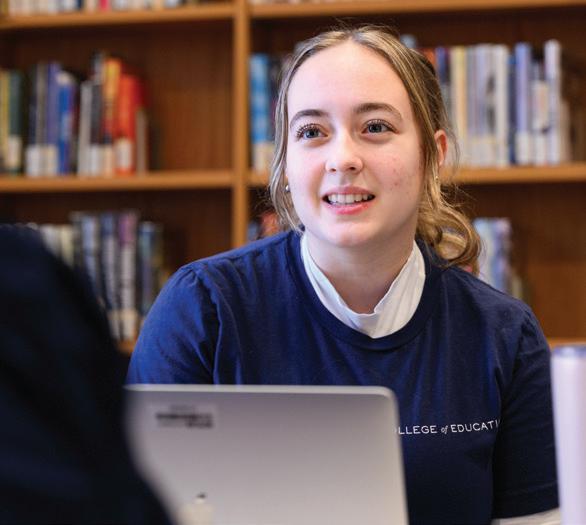
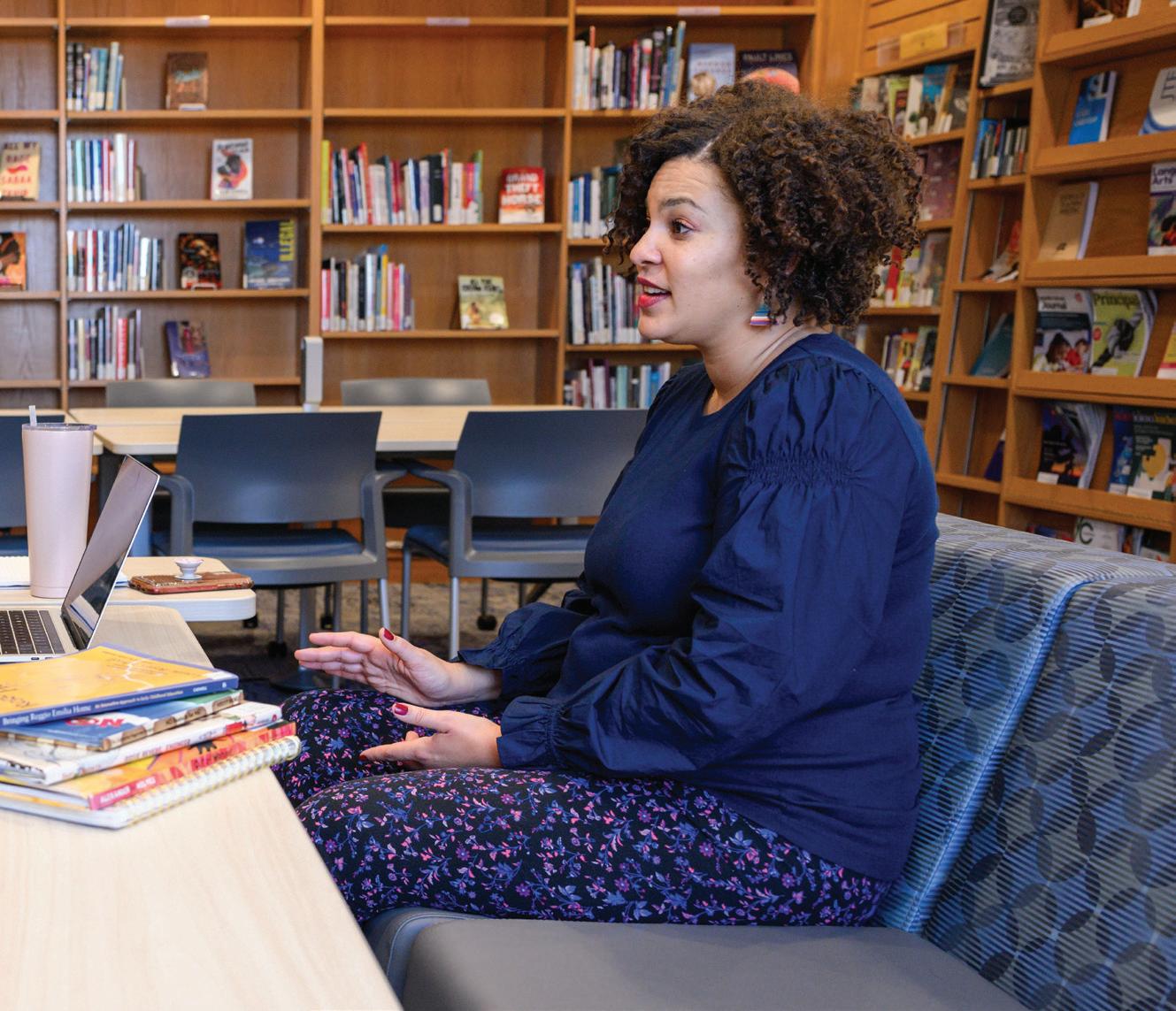
Melissa Ryan
Elementary Education major, Diverse Learners and Special Education Mild Intervention minors
Bloomingdale, Illinois
Tell us about the connection you’ve made with your professor.
Professor Harris Garad was my supervisor for my first semester of student teaching. I was extremely excited to have the opportunity to work with her after getting to be a part of her teaching demonstration. I
visit. I appreciated an outside perspective on my teaching and felt it was so beneficial that our relationship grew through that process rather than having started before it.
How has your professor encouraged, inspired, or influenced you?
Professor Harris Garad never failed to make me feel more confident in myself as an educator. She helped me to navigate the constant sea of thoughts I had about teaching. She helped to open a space for me to dive into questions of equity in education and provide insights from her own expertise.
How have you grown as a result of the connections you had with your professor?
My confidence has grown so much. Having someone come watch you do your job can be intimidating; however, our time together actually had the opposite effect. I felt so comfortable with her in the classroom and never felt judged. Her praise and encouragement meant the most to me during this time. Especially since we didn’t have much of a prior relationship, I knew that her words were genuine, and she was seeing me for who I was as a professional.
What do you think makes Butler unique?
For me, the small class sizes and push for community involvement stood out a lot during my college search. I was drawn to the sense of community. It was something I wanted. I also couldn’t stop obsessing over the Butler Lab Schools after my visit. I had never seen anything like it and couldn’t stop talking about them to my friends back home. Finally, Butler always stood out to me as a place that was constantly trying to improve. I knew I needed a place where growth was put first.
was in awe of her from that first meeting and my peers were jealous of the opportunity I was given to work with her. Our connection deepened with the conversations we were able to have. She embraced my teaching experiences and always allowed our conversations to flow beyond the intentions of her
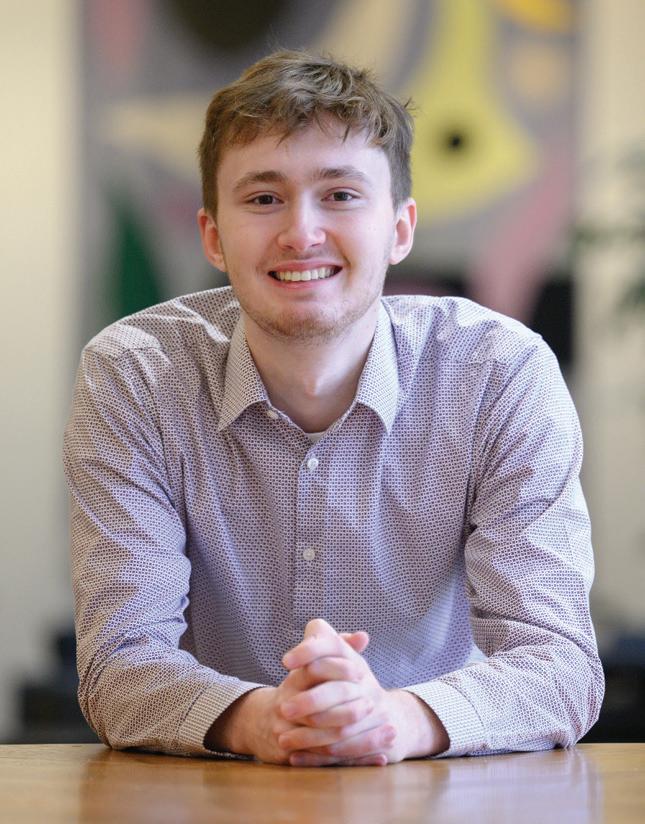
Hometown: Rensselaer, Indiana
Major: Middle Secondary Education and Spanish
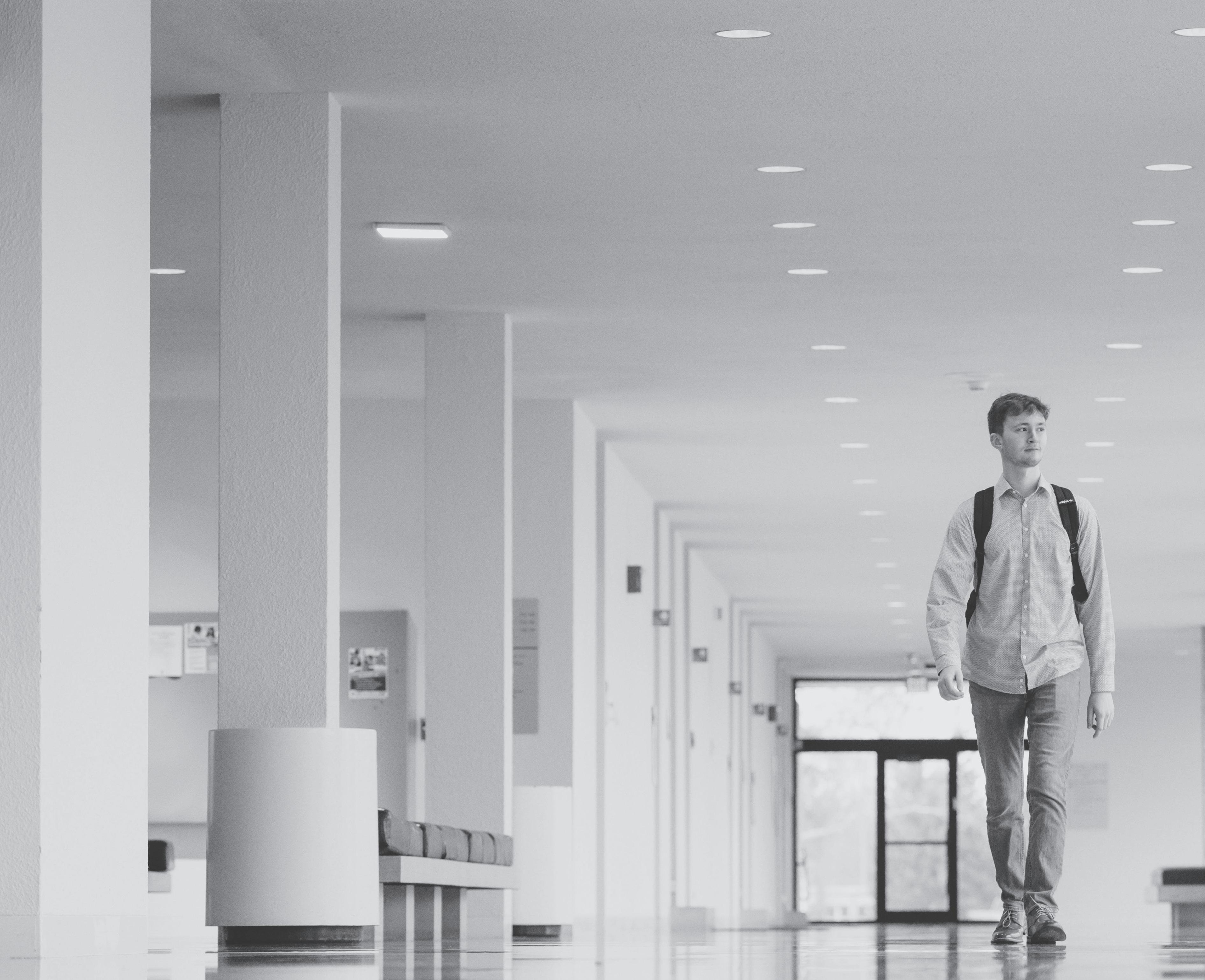
Co-curricular activities: Club Swim, College Mentors for Kids, Lilly Scholars Network, Student worker in University Advancement
Q: What’s your favorite thing about being a student at Butler?
A: The professors at Butler have made my time as a student so special. On the first day of classes, each of my professors made it clear that they’d be accessible as much as possible, and they’ve honestly exceeded my expectations. They are always willing to help, no matter the day or time.
Q: What service-related activities have you participated in?
A: I’m involved in Butler’s College Mentors for Kids chapter, which is an organization that serves local Indianapolis children. These children have been identified by their teachers and school leaders as children who would benefit from having an extra adult mentor in their lives. Every Tuesday, students come to campus and we meet and hang out with them and lead them in fun, learning-centered activities. As an Education major, this is right up my alley and has been so fulfilling.
Q: What’s your favorite spot on campus?
A: Irwin Library. I love the different vibes each corner and floor have—there is truly a study space for every mood.
Q: Which faculty member has inspired you the most?
A: Professor Theresa Meyer in the College of Education has most inspired me during my time at Butler. I am a student in her Exploring Educator Identity class and am always so encouraged and eager for my career in education upon leaving her classroom. She is one of the most enthusiastic educators I’ve ever witnessed and have had the privilege of learning from. She always offers to help her students with whatever they need.
Q: What do you want to do upon graduation?
A: After graduation, I want to begin my career as a Middle or High School Spanish teacher while working on earning my Masters in Education. I am so excited to help the next generation of students learn from others and themselves and to help them share their gifts with the world.
in Indianapolis. Marita witnessed the famed Butler basketball season, liked the energy of the school, and suggested that Ben apply here to finish his undergraduate degree.
Ben came to the COE with his own vision; to learn how to teach language learners. This vision was inspired by his grandfather, one of the few remaining speakers of the critically-endangered Haida language. He had stepped away from college to live near his grandfather and learn the language. It was fortunate for all of us that Marita inspired the idea that caused Ben to study at Butler.
Last spring, the College of Education welcomed back to campus Ben Young ’14 who presented an indigenous language film in which he served as a language teacher and supporting actor. The 2018 award winning film, Edge of the Knife (SGaawaay K’uuna)(2018) is a dramatic feature of a classic Haida story, told in the Haida language. The COE worked excitedly with Dr. Tom Mould, a Butler faculty member in the History, Anthropology and Classics department in the College of Liberal Arts and Sciences, who teaches and conducts research in the areas of folklore, language and culture, and American Indian studies to pull this event together. The evening ended with an enriching time of discussion and a door prize drawing, customary in the Haida community, with gifts from Alaska.
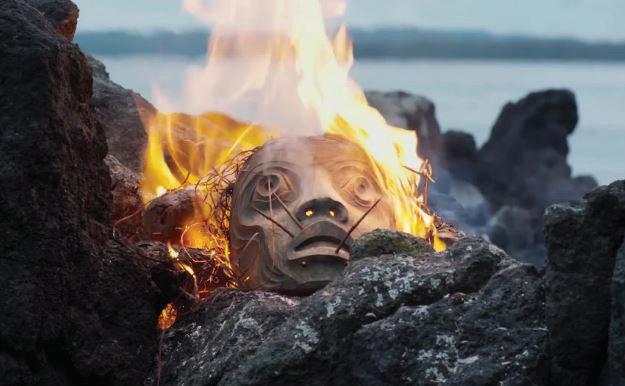

How did a native Alaskan find his way to Butler University?
Ben’s father-in-law was raised in Indianapolis and his wife, Marita, also a Haida descendant, was attending flight school
After graduation, Ben and Marita moved back to Hydaburg, Alaska with the intention of preserving the Haida language. In 2018, they opened Xántsii Náay Haida Language-Immersion Preschool. Ben is that educator, an agent of change, working with the ancestors of his community to respect and integrate those histories in order to share it with future generations.
Ben’s work in language education landed him the higherprofile position as an actor and language teacher for the film Edge of the Knife (SGaawaay K’uuna)(2018), The film is a tribute to the Haida culture and language, beautifully captured for their community and future generations. Those who attended the event were impacted and inspired by Ben’s personal stories of preserving language and culture through education.

One of the most meaningful aspects of teaching is to hear from a former student who returns with stories of how the lessons they once learned in a Butler classroom impacts their work and life. When, like Ben, that student is working to create “a world where educators serve as inclusive collaborators and agents of change toward a just society,” it becomes more than a vision; it is reality.
Learn more:
Official Selection, 2018 Toronto International Film Festival
“The College of Education envisions a world where educators serve as inclusive collaborators and agents of change toward a just society. We work toward a world in which the histories and strengths of individuals and their communities are valued, respected, and integrated into the education of all.”
Reprinted with permission, courtesy of Geist Magazine, Towne Post Network
Two brothers, both principals of Lawrence schools, represent what many students and educators call “the pride of 56th Street.”
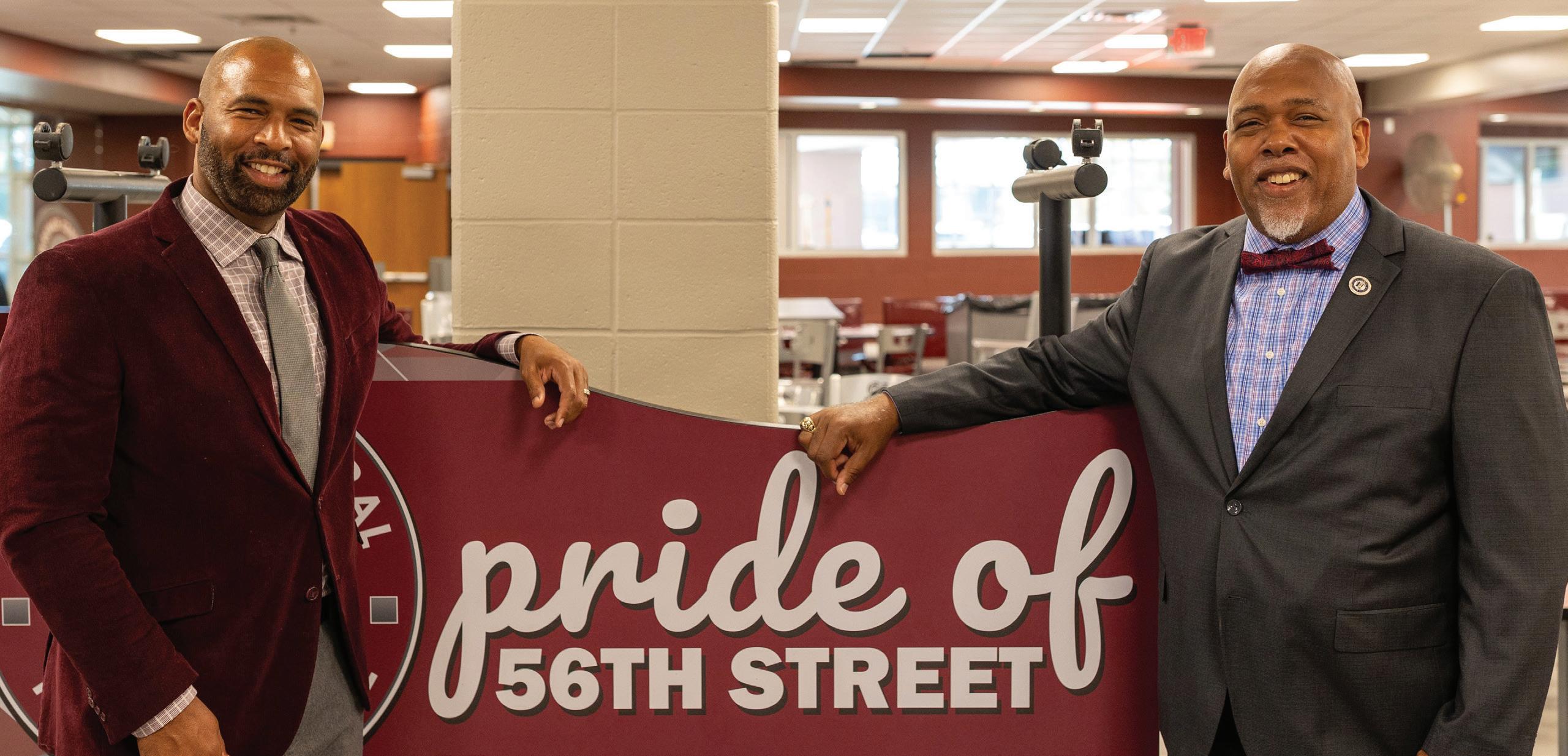
Victor Bush Jr., principal of Belzer Middle School, and Franklyn Bush, principal of Lawrence Central High School, both on 56th Street, say they have witnessed firsthand how many students have risen to the challenge to pursue excellence in their studies. They have also seen their schools continuously improve. Victor says that before receiving the honor to serve as the Belzer Middle School principal, he had the privilege of being a Belzer parent.
“As a Belzer parent I always appreciated the educational opportunities, fun learning experiences and supportive staff members that my children were blessed to encounter on a daily basis,” Victor says. “I literally watched my children transition from Harrison Hill Elementary to Lawrence Central. During their transition I learned about the true greatness of Belzer Middle School firsthand. The Belzer staff was always on point when it came to student-centered customer service.”
Franklyn says he has seen steady improvements at Lawrence Central High School.
“It’s due to our strong community relationships, parent partnerships and a very intentional focus on providing opportunities for our students,” Franklyn says. “We take pride in being a central hub of support, care and resources for our school community.”
Victor was equally impressed with the academic opportunities his children received as members of the Belzer learning community.
“Going into Belzer, I wasn’t sure about what Honor Bound was or what effect it would have on my son, Braxton, but from day one through his senior year in high school, Braxton always shared his sincere appreciation for his teacher, Vincent Alexander, and the life lessons that he learned in his advanced English language arts class for predominantly African American males,” he says. “As a matter of fact, to solidify his appreciation for his Honor Bound experience, Braxton selected Mr. Alexander as his honored educator during his senior year at Lawrence Central. In my opinion, that speaks volumes about the impact of the Belzer staff.”
As the principal of Belzer, Victor says he is committed “to ensuring that each student that we get to serve receives equitable access and support to become champions of character in the classroom, throughout the Lawrence community and on various fields of competition.”
Victor adds that he wants every student to feel as if they belong to the Belzer Family.
“I want all of my students to know that they have caring adults that are going to expose them to excellence, by leading by example and pushing them to own their learning while striving for nothing less than their best,” Victor says. “I also want all of my students to understand the importance of making positive decisions, overcoming challenges and making great things happen for others as well as themselves - the Belzer way. My expectations are definitely high, but I truly believe that with our strong team of teacher leaders, continuous improvements in our instructional practices, amazing curricular and co-curricular opportunities, plus improved efforts to foster as well as recognize
greatness, Belzer will continue to be a special place for all children and consistently tilt the needle of student achievement towards excellence.”
Victor believes “the pride of 56th Street” belief has trickled down from the top.
“Dr. Shawn Smith is a dynamic servant leader that always takes pride in everything that he does to make [Metropolitan School District of Lawrence Township] the district of destination,” Victor says. “From the day that my brother, Principal Franklyn Bush, received the keys to the Bear nation, he has been on a mission to instill or rekindle a sense of pride in every student and alum that has ever walked the halls of Lawrence Central High School. In doing so, he was allowed to develop a leadership team that shared common visions and were ready to roll up their sleeves to make great things happen on East 56th Street!” Although he was an assistant principal at Lawrence North at the time, Victor says he was impressed and encouraged with the way Principal Franklyn Bush took the challenge presented by Dr. Smith to make Lawrence Central High School a great place for young adults to grow.
“This included student cheer blocks, homecoming dances and competitive co-curricular activities,” Victor says. “Getting the right people on the bus. High expectations partnered with high levels of student support. Challenging students to believe in the power of the gray and strength of the maroon. Who wouldn’t want to be a part of something this special? When I became the principal at Belzer, the pride of 56th Street blueprint was already under construction. All I had to do was be smart and humble enough to follow my baby brother Franklyn’s lead. In doing so, Belzer is definitely on the move and has joined the pride of 56th Street movement.”
Franklyn says the pride of 56th Street brand has helped both Lawrence schools.
“When I got Lawrence Central we didn’t have much focus on our brand, so I created a marketing team with several key members involved and led by our freshman school Principal Mr. Gatewood,” Franklyn says. “He and members of his team created a design and slogan, and it fit perfectly with our vision and what we’re about. Lawrence Central has such a rich history of excellence and great community partnerships, we wanted something that would stick with our alumni, our current families and students, along with our future Bears.”
Franklin says there are ways that students and parents can continue to improve their schools.
“They can continue to be involved, find time to volunteer, and promote the great opportunities and things happening,” Franklyn says. “We serve all students and families and take pride in our diverse school community. Without our students’ and parents’ involvement, a lot of the great things that happen won’t exist.”
When Franklyn was announced as the 2022-2023 district administrator of the year, Victor says he actually felt like a proud father.
“I literally stood up and yelled, ‘Go Bears!’” Victor says. “I
stopped myself from running up on stage to give Franklyn a humongous hug, and sent my entire family a text in honor of his special recognition. In the text I said, ‘A job well done, sir!’ As a new principal, he has often provided me with major guidance, support, and even redirected me when I wasn’t thinking clearly. It’s almost like he’s my little big brother if that makes sense. Frank and his team of building leaders have done an amazing job making Lawrence Central the place to be.”
“Excellence in academics, athletics and the arts is what we expect on 56th Street, and Lawrence Central sets the tone on the west side of the district, in my opinion,” Victor adds.
Victor says he and Franklyn have a lot of similarities.
“Our pathways to serve in the field of education are so similar in nature, one might think that we had our career pathways mapped out together,” he says. “In a nutshell, I must admit that it’s been God’s plan all along. Who would ever think that two brothers from a loving family, but single-parent home, would end up being principals in the same district with schools that support each other right across the street?”
Victor adds that he and Franklyn had a lot of fun growing up.
“We grew up in the same house watching ‘ThunderCats’ and eating all the cereal up every Saturday morning,” Victor says.
“We played varsity basketball for legendary Coach Jack Keefer. We graduated from Lawrence North High School. We graduated with our bachelor’s degrees from the same college, Indiana Institute of Technology, and we completed the transition to teaching programs after receiving our degrees in business administration. We also graduated from Butler University’s Experiential Program for Preparing School Principals program, and we even laugh at the same silly things. But principals across the street from each other? That’s God’s plan. It’s truly a blessing to have such an enormous responsibility, but it makes it even better to share the experience with my brother. The pride of 56th Street is truly a family affair. Go Bears!”
Franklyn, meanwhile, says Victor has done a great job at Belzer.
“He’s the standard of excellence to me,” Franklyn says. “He has a heavy focus on positive outcomes for students and finding ways to support his staff. He’s also a winner. Everywhere he’s been, he has been a part of a winning tradition. He helps kids win at life, he helps staff win pursuing the goals, and helps programs win at the highest level. Going into education was a way for me to give back and to be involved with helping kids. My brother paved the way, and my wife stayed on me for years, after I graduated with my bachelor’s in business management/administration, to go back and get my education degree.”
Franklyn adds that he was inspired by Victor.
“My brother was an instructional assistant and coach at Lawrence North when I was a student there,” Franklyn says. “I got to see the daily impact he had on so many students. My wife was also relentless about me pursuing my education degree and it was the best thing for me. I would spend lots of time in her classroom helping in different ways and I really enjoyed being around kids. I changed out of the business world and started my road in education.”
Major(s)/minor(s): Secondary Education and Spanish with a secondary licensure in Teachers of English Language Learners
Graduation Year: 2019
Employer name and title: English as a Second Language Teacher, Pike High School
By: Meredith Sauter ’12Why did you decide to attend Butler?
I was drawn to Butler because of the personalized experience. When I visited campus as a high school student, I felt like I just clicked with everyone there. All of the professors seemed to take a genuine interest in me, which I did not find at other colleges that I visited. Ultimately, I had a gut feeling that Butler felt like home.
What were some of your favorite parts of being a student in the College of Education?
The College of Education (COE) is potentially the best place in the world, but definitely the best place at Butler University! I was able to build so many strong relationships with likeminded people who love the world of education and love the thought of trying to impact the world in a positive way, however we could. Spending time with people in COE feels like one big hug.
In addition, you’re out in classrooms right away. Whether you’re shadowing at a Butler Lab School or going to Shortridge High School or spending time at Pike High School, you realize that you’re no longer just a student—you’re on the other side, preparing to be a leader and an agent of change in the classroom.
What was your first professional experience after graduating from Butler?
My academic advisor, Dr. Adams, encouraged me to apply for the Fulbright U.S. Student Program because she knew how much I valued my study abroad experience in Chile, where I studied comparative education and social change. Pursuing the Fulbright would allow me to continue my love of traveling and teaching. I knew the Fulbright was very competitive, but thanks to the encouragement and mentorship from my COE professors, I applied and was ultimately accepted to teach English in Uruguay.
While there, I worked in both public and private schools and taught students ranging from elementary all the way to those enrolled in a university. It was such an incredible experience to teach English in a completely different country and culture and get to know professionals from all over the world.
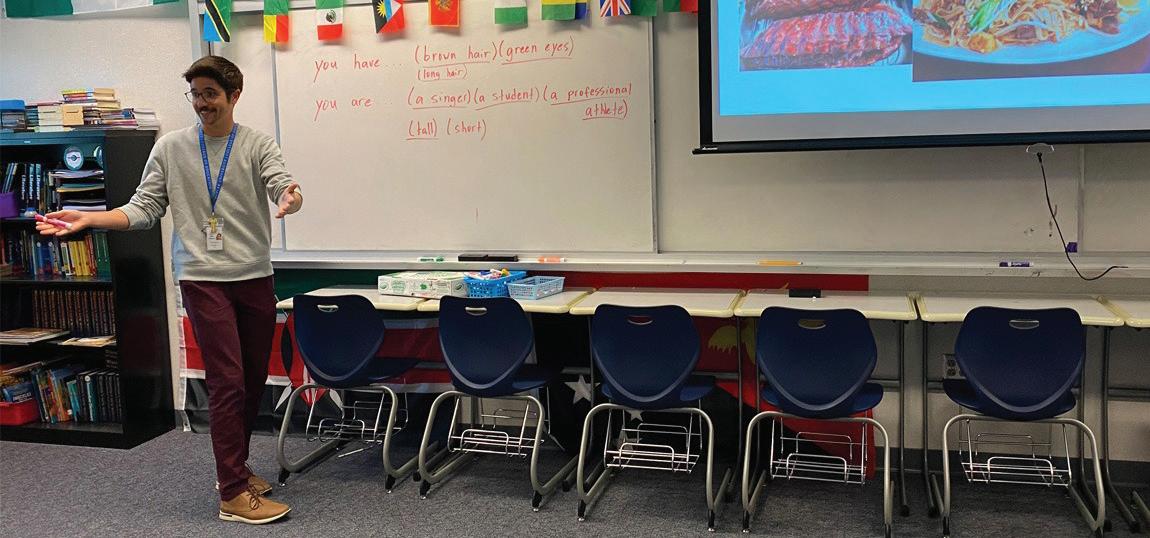
After returning from Uruguay, I secured a position teaching English as a Second Language at Pike High School. I love my work at Pike, and each day, each hour, is different. In my role, I teach students who have recently arrived in the United States and may or may not speak any English. I support students with work they have in other classes and offer a more guided type of study hall. I help translate, I work with other teachers to modify assignments, and keep a close watch on how my students are doing in their classes.
How did Butler prepare you for life after college?
One of the most important things that Butler and the COE taught me is how to be an advocate and how to be a good human being. Yes, I was taught how to be a great teacher and how to be effective at delivering content, but I learned that it doesn’t matter how good I am at teaching content if my students don’t trust or respect me. Butler and the COE really helped me prepare for and understand that.
What advice would you give a prospective student considering Butler?
My advice is come here! Butler is second to none in offering a personalized college experience. There are tons of examples, but just one memory is going to my Spanish professor’s house, drinking tea and coffee, and watching Spanish movies. I have a lot of friends who went to larger universities, and they never really had the opportunity to personally know their advisor and other faculty members, much less spend significant time with them, both inside the classroom and out. This experience is really unique to Butler and is what makes it such a special place to be.
The 2022-23 Diversity, Equity and Inclusion focus for the COE academic year has included the formation of 4 staff and faculty professional learning communities (PLCs) under the leadership and facilitation of the COE DEI Fellows: Dr. Lisa Farley, Amy Arnold, Dr. Brandie Oliver, Dr. Ryan Flessner, Dr. Mindy Welch, and Prof. Cathy Hartman. The PLCs met monthly during our COE OMNI meetings during which we spent dedicated time exploring the impact of our own identities and our current practices through the lenses of the three Butler University DEI Pillars: Representation, Belonging, and Engagement.*
Our DEI PLC curriculum broke the DEI Pillars into monthly Essential Questions which framed our PLC agendas and activities. Our Essential Questions included:
› Who am I? Who are we as a program/college?
› What is the impact of our/my identity on our teaching?
› What formative experiences shape my worldview(s)?
› How does my identity shape my professional work/ teaching/leadership?
› What representation(s) of my identity is present in my courses?
› What representation of my identity is absent or silent?
› What is the importance of belonging for learners?
› How do I/we live into our COE Shared Commitments?
› What conditions currently exist in the COE which create a strong sense of belonging for me?
› What necessary conditions for belonging are currently absent for me in our COE learning community?
› How do I/we create a sense of belonging for all members of our COE community?
› Under what conditions do I/we feel most engaged as a learner in the COE?
› What are my/our theories of how best to create engaging conditions for all learners?
› What outcomes do I/we anticipate when all members of the learning community are actively engaged in learning?
Our approach to learning is grounded in the work of CochranSmith et al. (2016, p. 71) whose framework identifies six facets of equity practice for professional development:
1. selecting worthwhile content and designing and implementing learning opportunities aligned to valued learning outcomes;
2. connecting to students’ and educators’ lives and experiences;
3. creating learning-focused, respectful, and supportive classroom and professional learning environments;
4. using meaningful evidence to scaffold learning and improve teaching;
5. adopting an inquiry stance and taking responsibility for professional engagement and learning; and,
6. recognizing and challenging classroom, school, and societal practices that reproduce inequity.
We believe we must begin by first looking at ourselves and understanding who we are, what we bring, and what the impacts or our identities are in our relationships with students and with colleagues. The DEI Fellows meet monthly to create agendas which reflect the unique needs of each PLC group but which keep all of us focused on the same essential questions. We believe starting with ourselves has allowed us to welcome our new COE colleagues into the OMNI learning community as we also make space for them to integrate their new energy, expertise, and experiences into our shared learning.
The DEI Fellows will be reviewing survey feedback on this year’s approaches in order to make revisions and adjustments for the 2023-2024 PLC meetings. Dean Kandel has graciously agreed to continue supporting and funding the DEI Fellows for the next two years. Two new Fellows are being welcomed: Prof. Felicia Williams and staff member Chasadee Minton. Dr. Lisa Farley has chosen to step out of the role at the conclusion of her two-year commitment to focus her energies in different directions next year. The remaining current Fellows have chosen to continue in their roles for the next two years.
The COE is grateful for the steadfast dedication and effort contributed by the DEI Fellows. The Fellows are excited to make plans for next year’s curriculum.
Cochran Smith, M., Ell, F., Grudnoff, L., Haigh, M., Hill, M., & Ludlow, L. (2016). Initial teacher education: What does it take to put equity at the center? Teaching and Teacher Education, 57, 67-78.
Learn more about current DEI efforts at the University level by visiting: https://www.butler.edu/about-butler/diversity-equityinclusion/


When Dr. Bettina Love was chosen as the keynote speaker for the 2023 El Sistema USA National Symposium in Indianapolis last March, the College of Education was presented with an opportunity from the Indianapolis Center for Arts Education and Innovation that we couldn’t refuse. They graciously offered to sponsor a professional development workshop for K-12 educators led by Dr. Love. The COE gladly accepted the offer and set to work inviting local schools to come and learn about abolitionist teaching. “Abolitionist teaching is as much about tearing down old structures and ways of thinking as it is about forming new ideas, new forms of social interactions, new ways to be inclusive… and new ways to establish an educational system that works for everyone, especially those who are put at the edges of the classroom and society” (Bettina Love, We Want To Do More Than Survive [Boston: Beacon Press, 2019] 88).
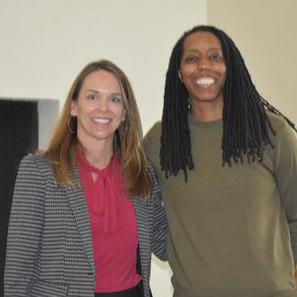
Dr. Love presented an inspirational talk about the struggles and the possibilities of committing ourselves to an abolitionist goal of educational freedom, as opposed to reform, and moving beyond what she calls the “educational survival complex.” This concept can shift educators’ perspectives away from common practices and allow for a wider approach that welcomes “creativity, imagination, healing, ingenuity, joy, and freedom dreaming” (Love, 89) to their work. This mindset can lead educators to examine how education intersects with social justice work, situating themselves in a role of empowerment. Then, in an interactive workshop, Dr. Love led us to examine our own social justice work. Resourced from her own teaching experiences with a wide variety of students, and most recently students from a predominately white higher education institution (PWI), Dr. Love provided thoughtful ways to raise awareness of institutional power and racism.
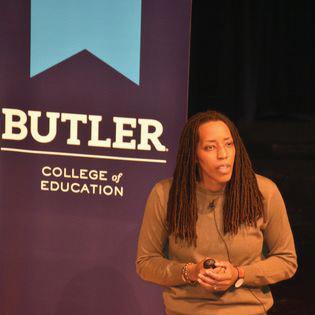
If you are interested in learning more about Dr. Love’s work and engaging in discussion with other educators, then we invite you to join us for an informal book group and exploration of abolitionist teaching. Send an email to coe@butler.edu to join the discussion or receive a free copy of We Want to do More Than Survive, while supplies last.
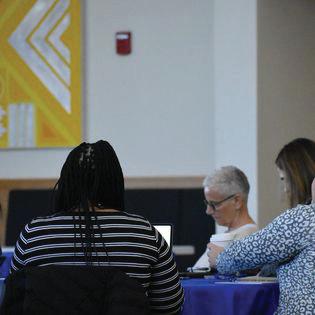

The College of Education at Butler University pursued the decision to submit a proposal to the North American Reggio Emilia Alliance (NAREA) to host the Mosaic of Marks, Words, Material, a research exhibit and atelier from Reggio Emilia, Italy. “The new exhibit from Reggio Emilia illustrates the interweaving of drawing and words creating an intelligent and poetic mosaic.”
We believe hosting this exhibit and atelier will enrich the dialogue around the learning experiences of young children and allow us to deepen our understanding of Reggio-inspired practice. In the essay “Weavings of the Future Between the Real and the Possible” from the Mosaic of Marks, Words, Material catalog, Paola Cagliari and Claudia Giudici wrote, “The intent is to build wide zones of discussion about the experience, actively involving teachers, parents, researchers, and pedagogistas in Reggio Emilia, in Italy, and around the world. Dialogue, exchange, comparing ideas, and listening continue to be the primary tools and strategies for constructing the educational experience at all levels: teaching practice, teacher education and professional development, family participation, and relations with the city at large. It is a project that is constructed day by day, with the contribution of all, in a dimension of continuous interaction, evaluation, and rigorous critical analysis.”

We look forward to seeing Mosaic of Marks, Words, Material, and the associated initiatives, through the eyes of preservice teachers, teachers prek-8th grade, families and children, city and state legislators and university professors. We wonder what might come from the dialogue between these many groups as, together, we not only examine the exhibit and atelier, but simultaneously examine our own work.
To learn more about the exhibition, visit: https://www.butler.edu/education/reggio-children-exhibition/
Dr. Susan Adamson was awarded the Guyer Chair in Education in 2023. The Guyer Chair appointment is for three years.
The Richard W. Guyer Chair is awarded to a junior faculty member in the College of Education who exemplifies “values such as: compassion, integrity, dedication, servant leadership, and concern for the education of the whole student.
Specifically, the recipient should be someone who advances the work of the College of Education and Butler University, demonstrates a deep caring and concern for students, and builds collaborations with the broader educational community.”

It’s Memorial Day, May 29, 2023, and on this day in 1930 “Black families of fallen World War I veterans are forced to travel separately from white mourners on a State Department trip to visit their loved one’s graves” (Equal Justice Initiative [EJI] calendar, 2023). Every single day on this calendar, Sunday through Saturday, marks another day of racial injustice and its legacy in US history. So many truths about our “history of enslavement and racial terror, legally authorized segregation and abuse of people of color, and continuing manifestations of racial hierarchy and bias” (EJI calendar, 2023) completely unknown to me.
In the US, we continue to legislate racism, covenants, bans and censorship meant to keep exactly these truths and more — invisible. Erasing history and “disappearing human beings” (Angela Davis, 1971), is no way to make this world a better place. As a child of the “counterculture” movement of the 1960s and 70s, I did learn how to reject social norms and express disapproval of racial, ethnic, and political injustices. I am not afraid to use my white privilege for good, but I haven’t done so with the kind of urgency I should.
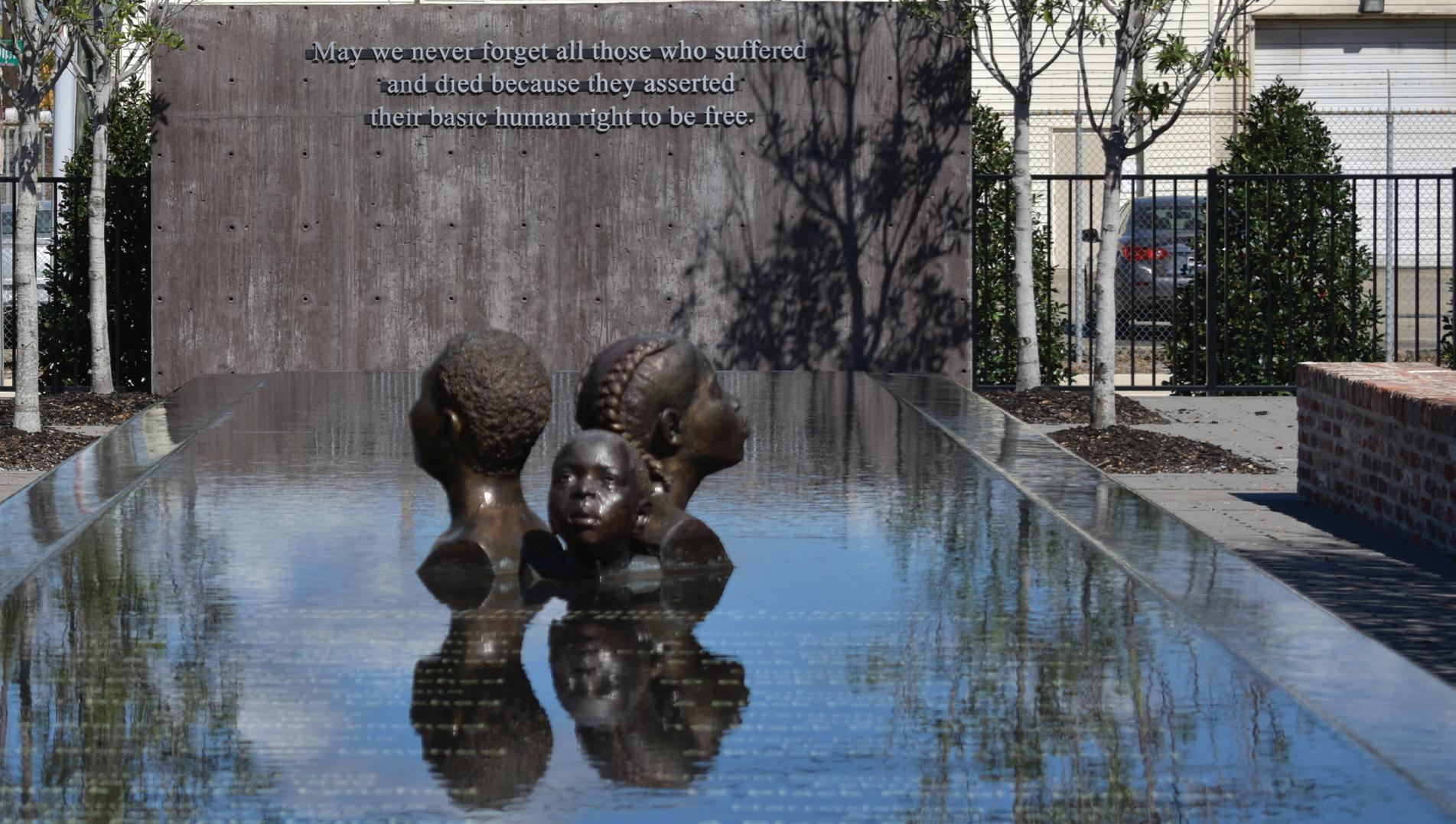
In 2021-22, the Butler University Giving Circle provided an important opportunity for me to try to do some good. Their enthusiastic support and generous funding allowed me and Dean Kandel to develop a mentoring program with experienced teacher-leaders of color with whom I had a long-standing relationship as Director of the Partnership
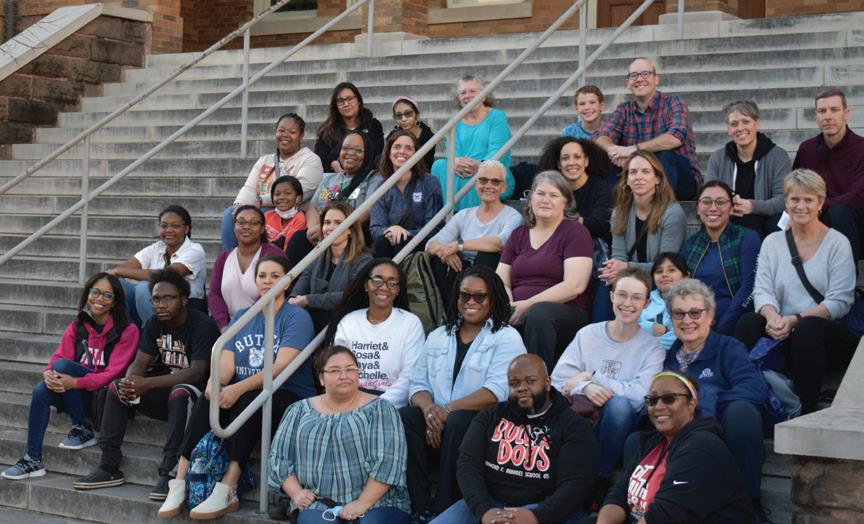
for Inquiry Learning. Their expertise and commitment to the Partnership’s leadership groups and professional development made them powerful collaborators in supporting our COE students to teach toward equity and social justice. Our proposal was framed by the work of Bryan Stevenson, Founder and Executive Director of the Equal Justice Initiative (EJI) and a distinguished social justice activist. He notes four ways people can move toward equity and social justice in our society: get proximate, change the narrative, stay hopeful, and be willing to do things that are uncomfortable. On Saturdays, once per month, I planned content for our meetings, which corresponded to chapters in Cultivating Genius: An Equity Framework for Culturally and Historically Responsive Literacy (G. Muhammad, 2020), often including video-recorded presentations by Black and Brown scholars, authors, and illustrators. Mentor-teachers engaged COE students in discussions that deepened their understanding of equity and justice by connecting the content to issues they faced in their classrooms; professionally and personally.
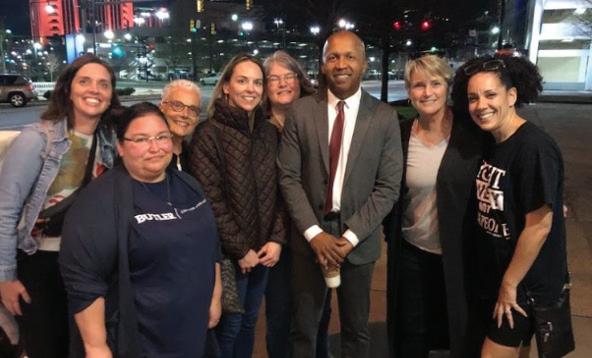
It seemed divine intervention was responsible for bringing Bryan Stevenson into our lives—in person! The Christian Theological Seminary’s Faith and Action Project engaged him to speak at Clowes Memorial Hall on October 5, 2021, offering free tickets to the Butler community. Almost every student in our social justice group attended alongside their teacher-mentors. That night, Bryan Stevenson helped us to understand that if we get proximate, we’ll discover something

transformative; that we can’t be silent when people are bigoted, violent, and reckless; that hopelessness is the enemy of justice; and that if we listen, we will feel the push of generations that came before us and know the path forward. Bryan Stevenson’s words resonated strongly, beckoning us to his EJI Legacy Museum and National Memorial for Peace and Justice in Montgomery, AL. Still… in studying the work of Black educators and scholars we were making progress in becoming the teachers students need us to be; “trying to do less harm each and every day”(Bettina Love, 2023) in our practice and in our lives presented opportunities for changing the narrative; engaging in justice work was animating “making a difference in the way [we] think, act, speak and teach” (student member, 2021-22 social justice mentoring group); and when we listened it seemed the uncomfortable things that might be transformative were all the more likely to happen.
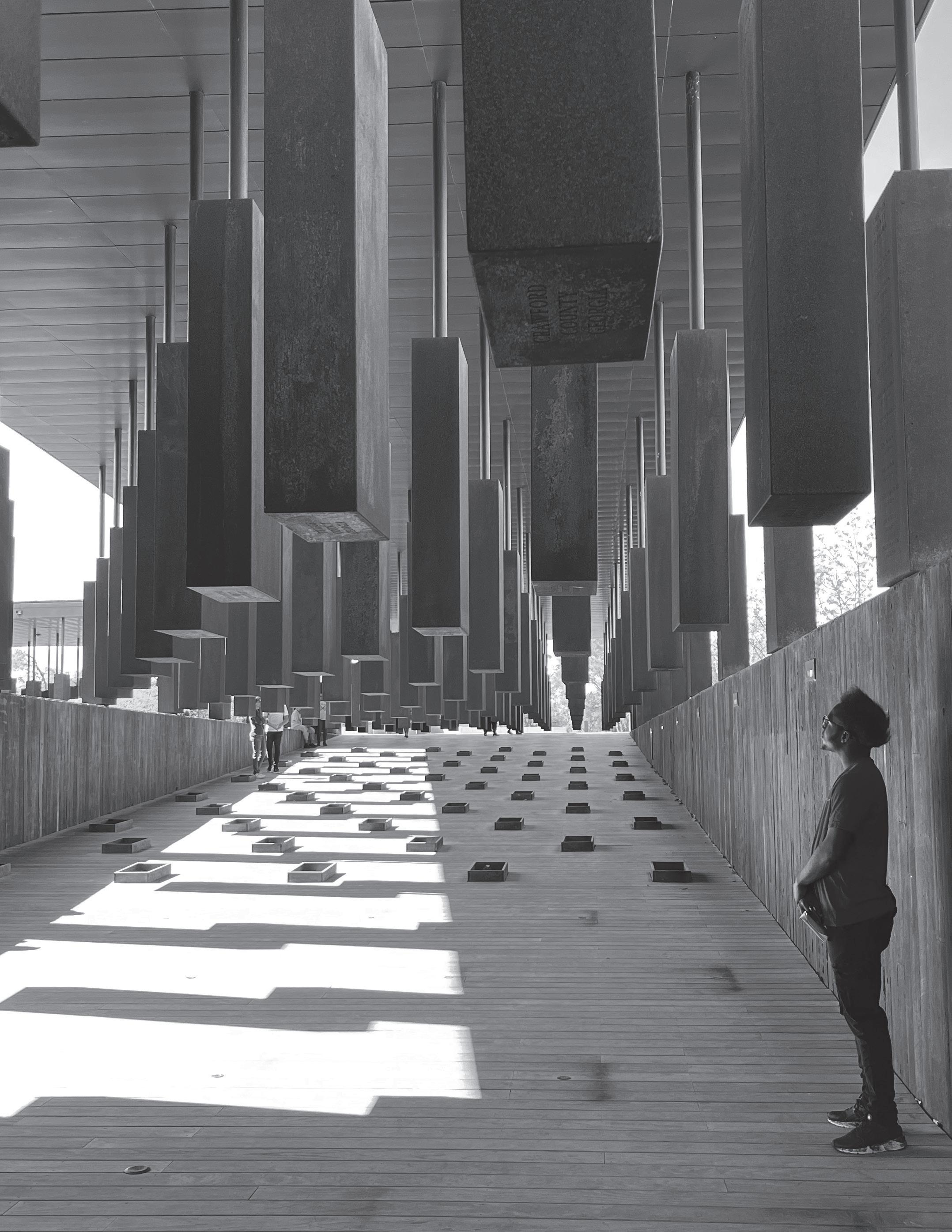
It was a powerful pilot year, but not without equity and social justice issues of its own. Institutional structures can marginalize students. Our open invitation to apply for membership in this group attracted white COE students but led to just one application from a COE student of color. Our teacher-mentors shared with me their concern about this incongruence; they understood from their own experience the impact “identity-affirming spaces” (E. Buchanan-Rivera, 2022) could have on the academic/career trajectories of students of color. In an attempt to remedy this problem, I asked COE faculty to nominate students of color to whom I could extend a personal invitation. Five of seven nominated students were able and honored to join this group in year two, where they seemed to have a sense of their own belonging.
Power and control can also lead to oppression. Another crucial change came when I relinquished responsibility for planning each meeting session. Instead, the teacher-mentors ably created an environment that honored humanity, demonstrated understanding of students’ intellectual and emotional needs, touched
on memorable and deeply meaningful topics, affirmed their identities, and made space for disclosing what happens in places that negate values of equity and inclusion (E. BuchananRivera, 2022) – all things I could not have done nearly as well as they did. We are immensely grateful to Central Indiana Community Foundation (CICF) for providing funds to support teacher-mentors, purchase books for students, as well as afford our longed-for journey to the EJI Legacy Museum and National Memorial for Peace and Justice in early March 2023. Our social justice mentoring group traveled by charter bus with fifteen COE faculty, staff, friends, and family members to Montgomery, Alabama to visit the Equal Justice Initiative Legacy Museum and National Memorial for Peace and Justice. We participated in the 58th Selma Bridge Crossing Jubilee, stopping at the 16th Street Baptist Church in Birmingham, AL going down and in Nashville, TN on our return trip where two members of Sigma Gamma Rho from HBCU Fisk University gifted us with a tour of their campus. “I will always have this experience to look back at and use to remember my purpose” (member 2022-23 social justice mentoring group).
If we truly care about justice, freedom, and equity it is incumbent upon white people like me to disrupt the systems that work to maintain the status quo and our own white privilege. Barriers to creating “identityaffirming spaces” (E. Buchanan-Rivera, 2022) where community members of color would thrive, are hiding in plain sight. I can and I must try to do less harm each and every day
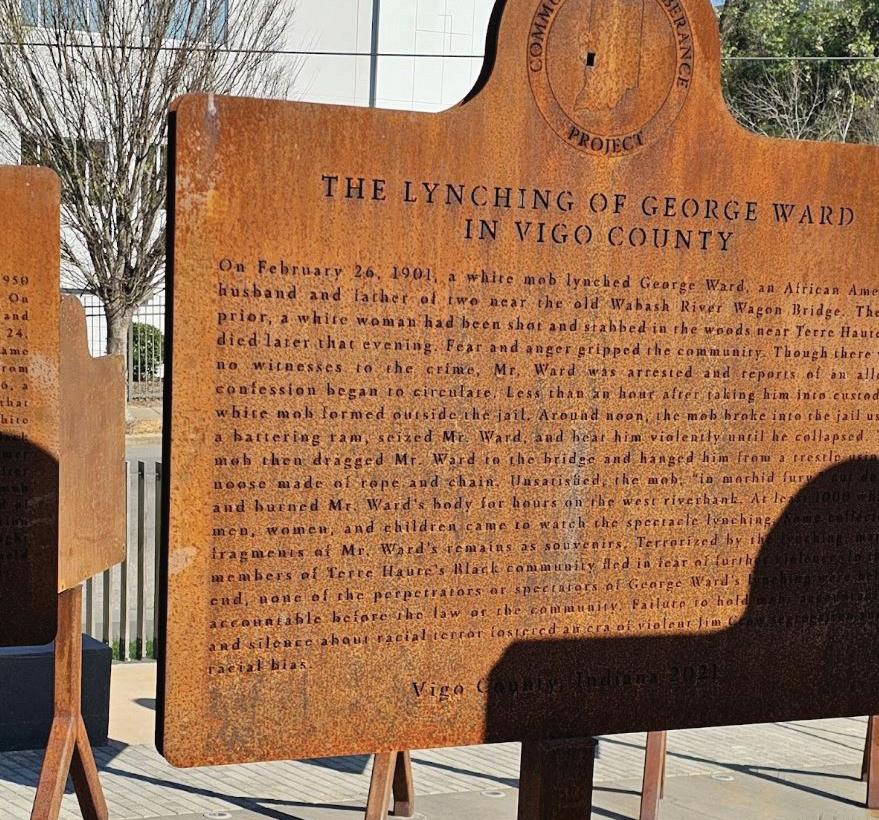
To view the photo essay of the Equal Justice Initiative trip to Alabama, please visit: https://bit.ly/EJItrip

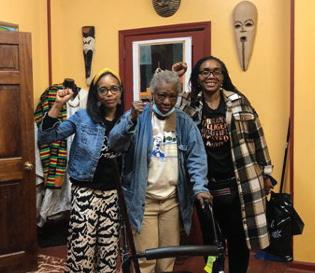
Nick Abel
› Along with COE alum Lade Akande ’09 MS ’15, presented research on the impacts of yoga and mindfulness on stress and anxiety among high school students at the Indiana School Counselor Association annual conference.
› Chaired the search committee that hired Chloe Moushey to teach in and lead the new online master’s degrees in school and clinical mental health counseling that will launch in fall 2023.
Susan Adams
› The DEI Fellows and the COE DEI PLC program received the inaugural Butler University DEI Program Award during the 2023 Founders Week Celebration.
› Publishing a book chapter with Ryan Flessner in the forthcoming edited book, Professional Learning Journeys of Teacher Educators (Summer, 2023) Butler, B. & Ritter, J.K. (Eds). Chapter title:”A Long Conversation: Professional Learning across Time in Teacher Education”
Susan Adamson
› Honored to be appointed as Richard Guyer Chair and deeply appreciative of the recognition for “advancing the work of the COE and University, demonstrating deep caring and concern for students, and building collaborations with the broader educational community.”
› Facilitated the Mentoring Toward Social Justice in our Schools and Community group led by BIPOC mentor educators for COE BIPOC students, which culminated in a journey to the Legacy Museum and Memorial for Peace and Justice in Montgomery, AL and also included a stop at the 16th Street Baptist Church in Birmingham, AL, and tour of HBCU Fisk University guided by SGRho sorors in Nashville, TN.
› Completed my first year in this staff leadership role; this is the most professionally and personally congruent space I have ever worked.
› Welcomed into the DEI Fellows and led the Staff Professional Learning Community that offered us, as a staff group, an important time and space to get to know each other.
Katie Brooks
› Presented my research at the American Educational Research Association and Teachers of English to Speakers of Other Languages annual conferences. My presentations focused
on collaborative family engagement, teacher advocacy, and instructional coaching for equity.
› Worked on a new research project with Dr. Suneeta Kercood about school-based equity and access issues for students who are dual identified as multilingual and exceptional learners.
Deborah Corpus ’74
› With Danielle Madrazzo, wrote and received the a $75,000 planning grant from Lilly Endowment Inc. and began work with the MLK Community Center.
› With co-author Ann Giddings, pubished “First Steps Towards Developing a Teacher’s Self-Extending System in the Spring 2022 issue of The Indiana Literacy Journal
Lori Desautels ’84
› Published Intentional Neuroplasticity for educators in January 2023.
› Keynoted the largest trauma conferences in Brisbane, Australia and Houston, Texas in 2022 and February 2023.
Brian Dinkins MS ’07
› Completed first year as an Assistant Professor and the Director of the EPPSP program.
Kelli Esteves
› Supported the design and (re)launch of the Alternative Special Education Certifcate and pathway to licensure for graduate students.
› Presented research on collaborative artmaking in partnership with a community-based arts organization that serves people with disabilities at the TED CEC conference in Richmond, Virginia.
Lisa Farley
› Along with Erin Garriott, successfully included 2 semesters of Unified Pickleball within the core curriculum in PWB Pickleball. Due to that success, we are starting Unified Pickleball with Indiana Special Olympics to help them move toward a sanctioned sport.
› Again along with Erin Garriott, took 20 Butler students on a study abroad trip called “The Intersection of Disability and Sport” where we volunteered for the Special Olympic World Games in both the Athlete Congress as well as Healthy Athletes. As a group, we were also approved to teach Unified Pickleball at the Cultural Festival associated with the World Games!
Karen Farrell MS ’91
› Published: Farrell, Jeremiah and Farrell, Karen ‘Euler Entertainments’, Gathering for Gardner Conference Gift Exchange Book, online at G4G Exchange Archive Database, Spring 2022, Atlanta, GA.
› Completed annual national, regional, state and Butler accreditation reports
Ryan Flessner ’97
› Received an Indiana STEM Cadre Grant that allowed for the purchase of materials to be used in math methods courses. Butler preservice teachers will use the materials to design STEM-based provocations that will then be implemented in local preschool-grade 2 classrooms.
› Presented at two national conferences: the annual meeting of the American Association for the Advancement of Curriculum Studies with colleague Susan Adams and the annual meeting of the American Educational Research Association with alumna Laura Ann Hayden ’16.
Shelly Furuness MS ’05
› Honored as a Butler Faculty All-Star and awarded a sabbatical leave for Fall 2023.
› Appointed as Senior Faculty Fellow in the Office of the Provost beginning Summer 2023.
Erin Garriott MS ’01
› Scouted Germany (Summer 2022) with Lisa Farley in preparation for our Study Abroad trip to Berlin and Hamburg in June 2023. Travelled with 20 students to learn more about the intersection of disability and sport while we volunteered at the Special Olympics World Games in Berlin. Go Team USA!
› Completed my Doctorate degree in Organizational Leadership with a focus of Inclusion and Diversity from the University of Dayton.
Kelley Hahn ’86
› Promoted to the Budget & Scheduling Coordinator role.
› Assisted search committee with the Lecturer position in the COE.
Brooke Harris Garad
› Traveled to Reggio Emilia, Italy to study the philosophy that is the foundation of their early childhood programming.
› Appointed to the National Council of Teachers of English (NCTE)’s Public Language Awards Committee.
Cathy Hartman ’97
› Traveled to Reggio Emilia, Italy to study the philosophy that is the foundation of their early childhood programming.
› Served as a DEI Fellow for the College of Education Professional Learning Communities.
Tom Keller
› Awarded a Sabbatical for Spring 2023
› Sponsored trip to Italy/Greece for students in our Master’s program
Ashley Mack-Jackson
› Awarded $2,000 grant to design an FYS course that includes an Indianapolis Community Requirement (ICR) component
› Awarded commission from the Arts Council of Indianapolis to complete a poem that will accompany a mural of poet Etheridge Knight, the final mural in The Indianapolis Bicentennial Legends mural series.
Danielle Madrazo
› Supported meaningful partnerships for COE students at IPS #43 (library project), MLK Center Indy (LEI ASRI planning grant), and IPS Arsenal tech (Early College Teacher Pathway).
› Co-presented a series of eight workshops for administrators in Mason, Michigan around leading for equity and DEI in their district.
Angela Mager ’92 MS ’01
› Worked along side colleagues Danielle Madrazo, Felicia Williams, Brooke Kandel, and stakeholders at IPS to design the Early College Teacher Pathway at Arsenal Tech High School.
› Served as one of ten faculty/staff on Butler’s First Year Experience Committee. This group is charged with activating and implementing the key indicators and iniatives from the Gardner Institute’s Foundation of Excellence work that was completed in 2022.
Alexis Methner
› Accepted into the MBA program through the Lacy School of Business.
› Worked through New Student Registration with Assistant Dean Angela Mager.
Theresa Knipstein Meyer
› Served as the COE Commencement Speaker for 2023
› Applied and was accepted to the COE’s DEI Fellow program for a three year term.
› Applied and was accepted to the Master’s degree program in Strategic Communication in the College of Communication.
› Promoted to full professor.
› In collaboration with Randall Ojeda MS ‘18, supported bringing together School Counseling graduate students and first-year Morton-Finney Scholarship recipients to engage in discussions focused on DEI.
› Presented at Oxford University about developing science teacher identity in preservice students through community collaboration.
› While on sabbatical in the spring, designed and launched the Butler Lifelong Learning Collaborative, a new educational model for the University. Intended audience is anyone from graduates to senior citizens! Learn more: https://www.butler. edu/academics/lifelong-learning-collaborative/
› Launched two new courses: PE 233 (3) Sport Pedagogy: Invasion Games, and PE 234 (3): Net/Wall Games. Both courses are grounded in the Teaching Games for Understanding (TGfU), (Thorpe, Bunker & Almond, 1986), Net/Wall Games (Bunker and Thorpe, 1986), and the Sport Education Curriculum and Instructional Models (Siedentop, 1994; Siedentop, Hastie & Van Der Mars, 2020).
› Co-presented with Lisa Farley at the 2023 Celebration of Innovations in Teaching & Learning (CITL): The Evolution of Pickleball at Butler University: Get in the Game! This presentation depicts the longitudinal vision rooted in a theoretical framework and pedagogical research for optimal teaching and learning via Physical Well Beging (PWB), one Area of Inquiry in the university core curriculum, and the College of Education Sport Pedagogy minor. The presentation chronicales advances of the vision, ongoing development and growth of Pickleball as one particular movement form and lifespan physical activity that is conducive to all ages and abilities.
› Supported Susan Adamson in planning the trip to the Legacy Museum and the Memorial for Peace & Justice, both in Montgomery, AL, the 16th Street Baptist Church in Birmginham, AL, and tour of Fisk University, an HBCU in Nashville, TN.
› Starting in fall 2023, will serve as the Faculty Associate for Pedagogy for the University for a two-year term.

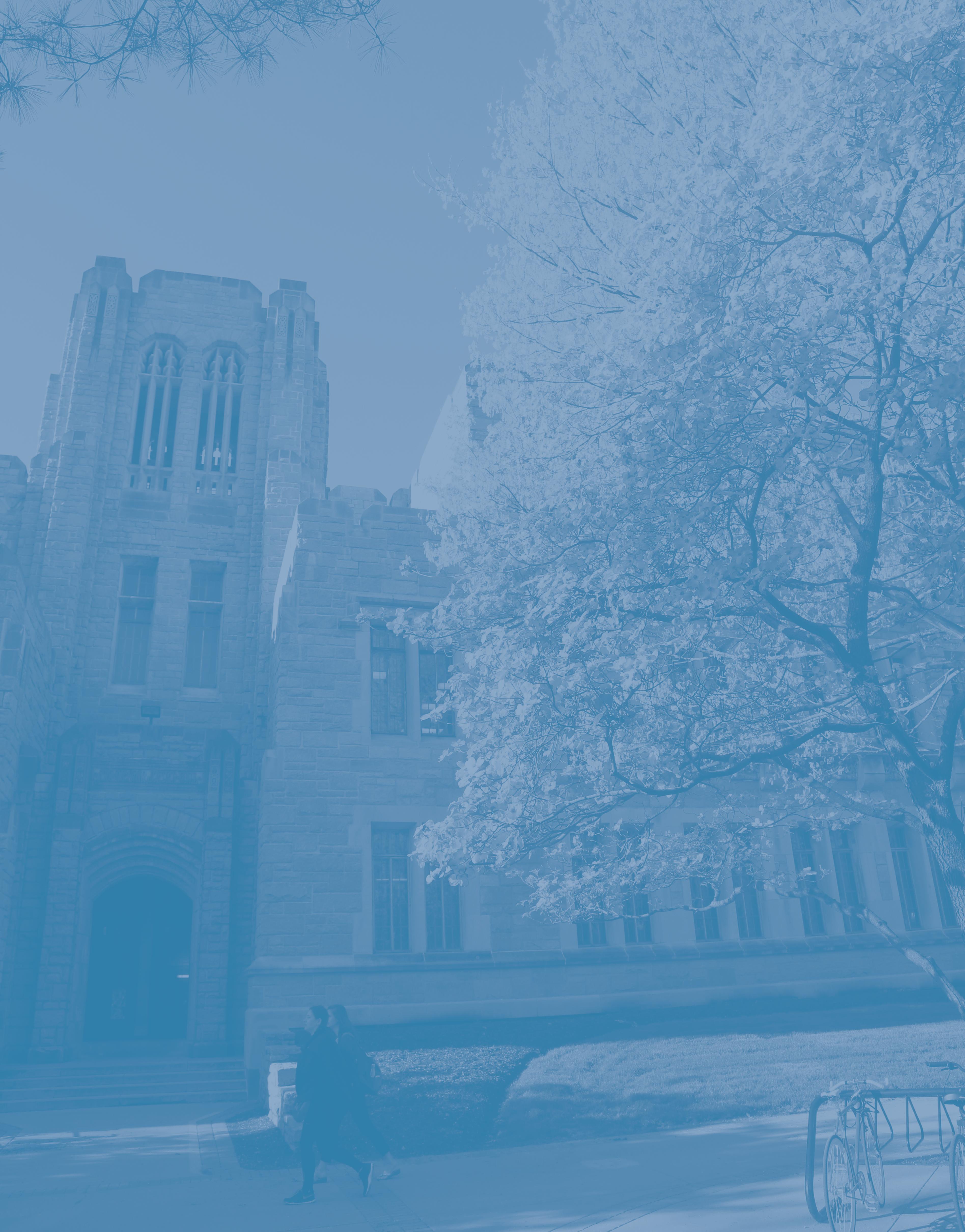
MASTER’S DEGREE PROGRAMS
Experiential Program for Preparing School Principals
School Counseling
ONLINE MASTER’S PROGRAMS
Mental Health Counseling
School Counseling
CERTIFICATE PROGRAMS
Alternative Special Education–Mild Intervention Certificate
Applied Educational Neuroscience Certificate
Licensed Mental Health Certificate
Teachers of English Learners Licensure
DO YOU KNOW SOMEONE WHO WOULD FLOURISH WITH COE GRADUATE INSTRUCTION?
MAYBE IT’S YOU!
To request more information, scan here:
